Why you can trust Tom's Hardware
Core i7-12700K Gaming Benchmarks — The TLDR
As usual, we're testing with an Nvidia GeForce RTX 3090 to reduce GPU-imposed bottlenecks as much as possible, and differences between test subjects will shrink with lesser cards or higher resolutions. Because most of the titles below show little meaningful differentiation at higher resolutions, we only tested four of the seven titles at 1440p.
Due to Alder Lake's hybrid architecture, there will be early teething pains with some games. In some cases, Denuvo DRM can falsely identify Intel's E-cores as a separate system, and thus 22 Denuvo-enabled game titles currently don't work with Alder Lake chips. Intel has issued guidance on a workaround that fixes the issue for all impacted titles. You can read about the simple fix and find the impacted games here. Denuvo says that all affected games will be patched soon.
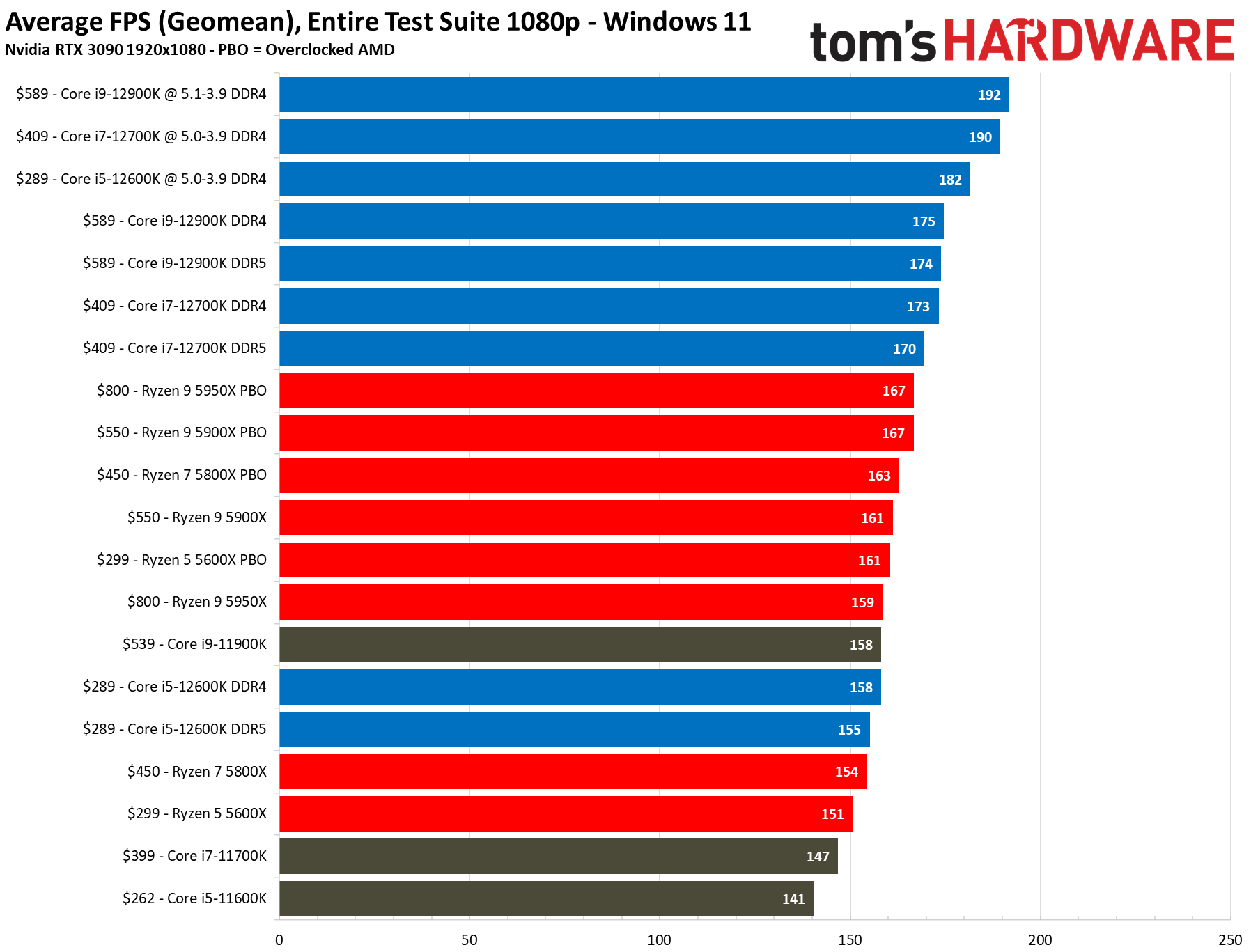
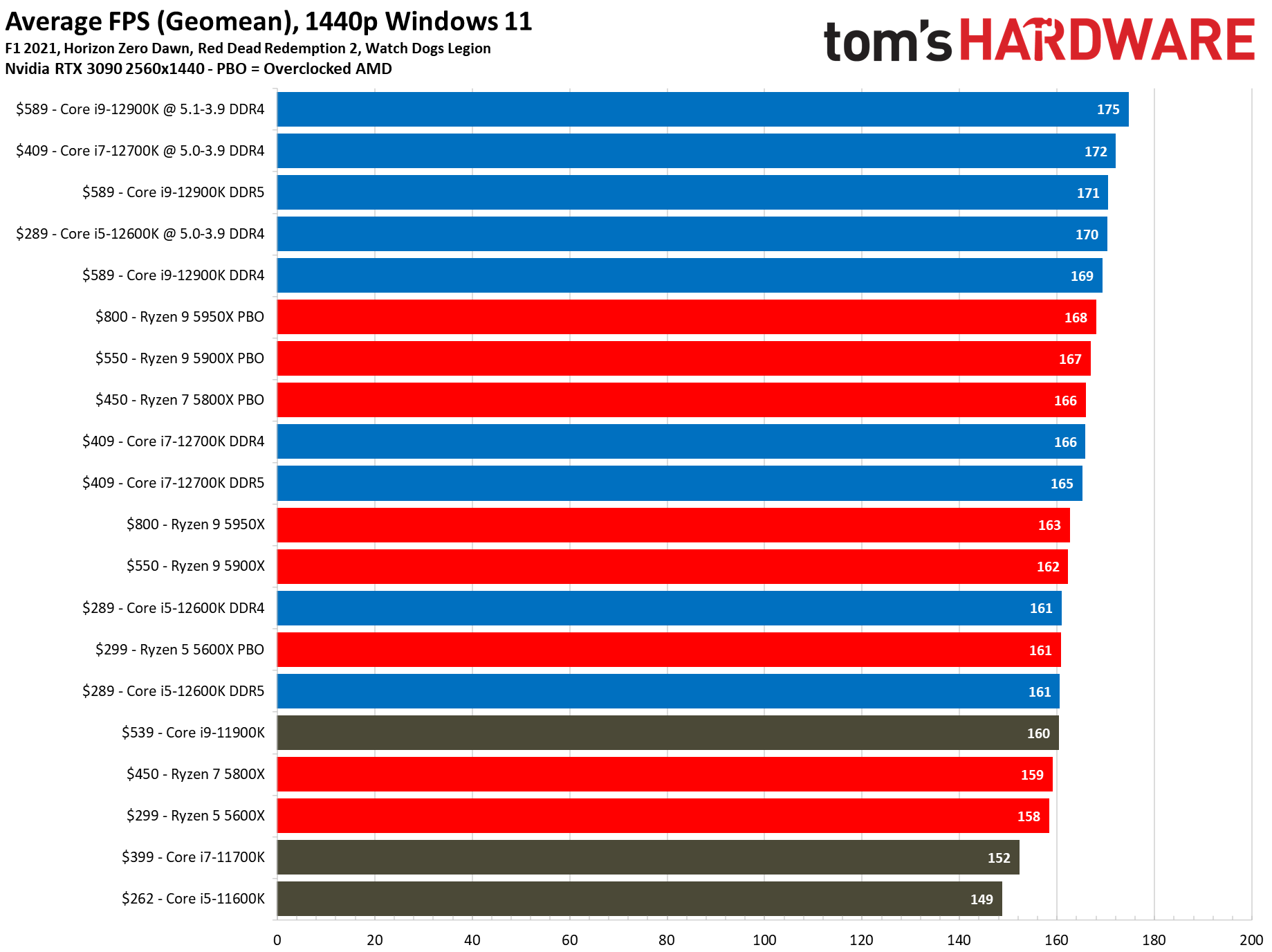
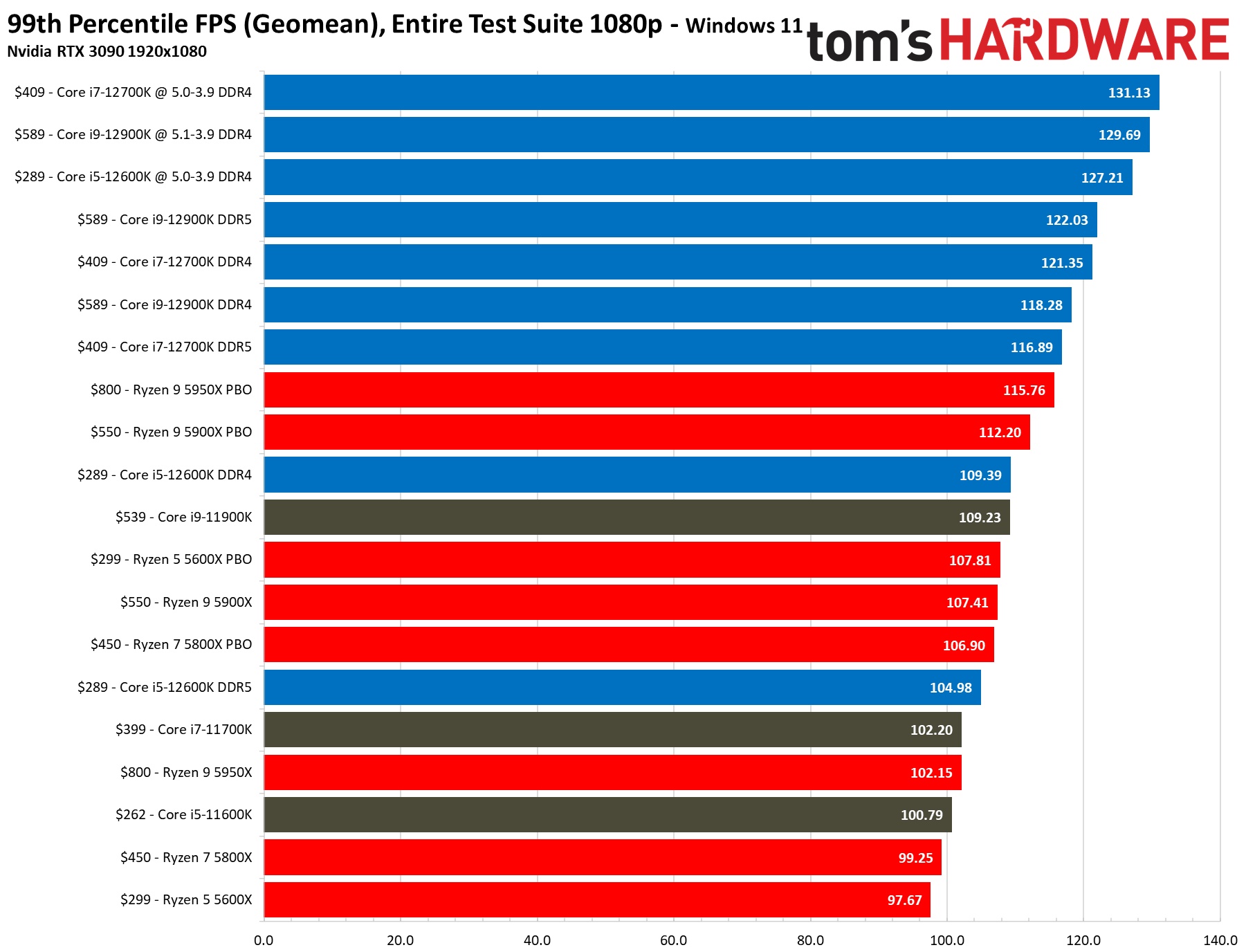
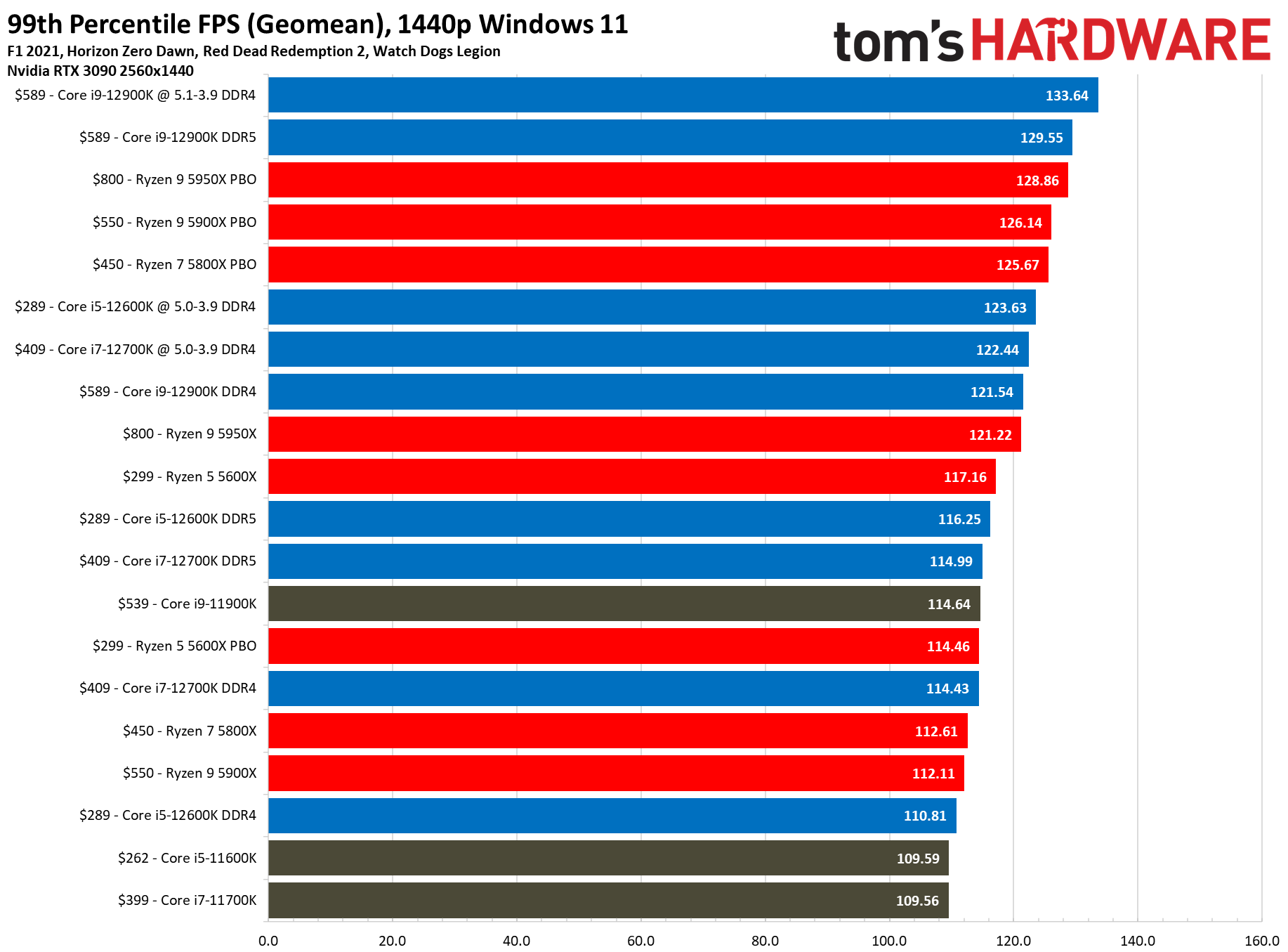
Paired with affordable DDR4 memory at the 1080p resolution, the $409 Core i7-12700K is an impressive 12% faster than the roughly $390 Ryzen 7 5800X in our cumulative performance measurement. The 12700K is also 7.5% faster than the more expensive $549 Ryzen 9 5900X that holds the title as AMD's fastest gaming chip.
Pairing the Core i7-12700K with DDR5 causes performance to decline, slightly reducing the leads to 10.4% over the 5800X and 5.5% over the 5900X, but we have to keep things in perspective — we're only looking at 3 fps between the DDR4 and DDR5 configs. It's clear that you don't need an expensive DDR5 kit or motherboard to extract the best of the 12700K's performance. That's important because DDR5 remains extremely expensive and suffers from poor availability.
The Alder Lake chips profit more from overclocking than the AMD Ryzen models. After tuning, the Core i7-12700K with DDR4 was 9.8% faster than the stock configuration at 1080p, basically typing the 9.7% overclocking gain we achieved with the Core i9-12900K. Overall, the Alder Lake chips are a boon for enthusiasts. By comparison, the overclocked Ryzen chips were anywhere from 3.7% to 6.6% faster after tuning. You can read more about our overclock settings on the overclocking page.
| Tom's Hardware | 1080p Game Benchmarks - fps %age |
| Core i9-12900K DDR4/5 | 100% |
| Core i9-12700K DDR4/5 | ~98.3% |
| Ryzen 9 5900X | 92.0% |
| Ryzen 7 5800X | 88.0% |
The Core i7-12700K is plenty impressive against AMD's chips, but perhaps it is most impressive against Intel's own flagship $589 Core i9-12900K: The 1.1% difference between the two chips is in the noise of expected run-to-run variance. That means the 12700K delivers a 12900K-class gaming experience, but for $180 less. Naturally, the 12900K will have a bit more heft for background tasks like streaming due to its additional four E-cores, and perhaps a bit more gas in the tank for future GPU upgrades due to its 200 MHz higher boost clock.
Oddly enough, the arrival of Alder Lake could be a bit disappointing to Rocket Lake buyers that adopted the previous-gen platform a mere six months ago. The 12700K leaves its ancestors in the dust, beating the $399 Core i7-11700K by 18% and the $539 Core i9-11900K by 9.5%. That means the resale value of Rocket Lake chips just dropped significantly.
Naturally, moving over to 1440p brings a GPU bottleneck into the equation, so the performance deltas between the chips shrink tremendously. If you game at higher resolutions and don't plan to upgrade your GPU before you buy your next CPU, those results provide a good perspective.
Flipping through the 99th percentile charts for both resolutions also shows larger deltas, but we have to view those with caution as Windows 11 is still young and seems to suffer from more framerate variability than our Windows 10 test platform. This could result from yet-to-be-updated game code, the relatively new graphics drivers for Windows 11, or some other combination of factors that could be smoothed out in the future.
Intel's Alder Lake carves out a convincing win in Windows 11, but large performance deltas in a few of the game titles can heavily impact these types of overall measurements. For instance, Intel enjoys a sizeable lead in Hitman 3, but that game is specifically tuned to leverage the E-cores effectively by offloading low-priority tasks like physics to the small cores. That type of benefit will also come in handy for some streaming programs, like OBS, that support offloading the encoding tasks to the E-cores.
The competition between Intel and AMD is absolutely closer now, so it's best to make an informed decision based on the types of titles you play frequently. Be sure to check out the individual tests below.
Get Tom's Hardware's best news and in-depth reviews, straight to your inbox.
3DMark, VRMark, Chess Engines on Intel Core i7-12700K
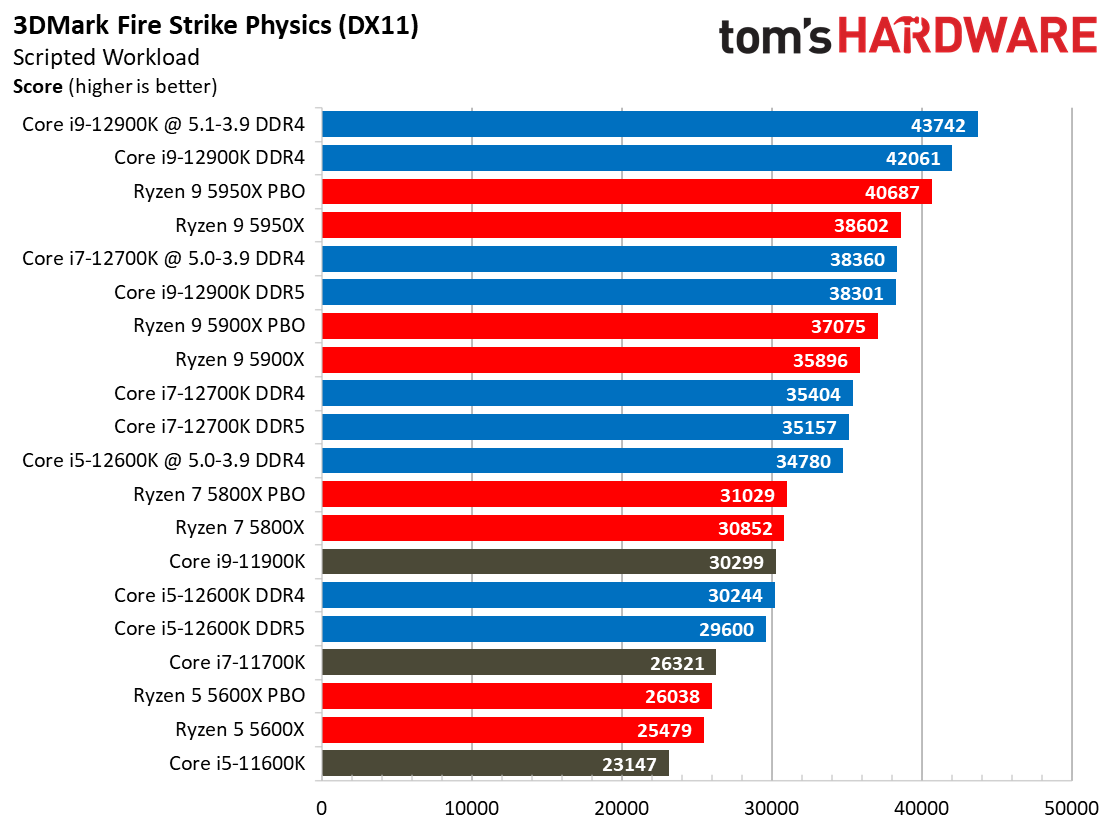
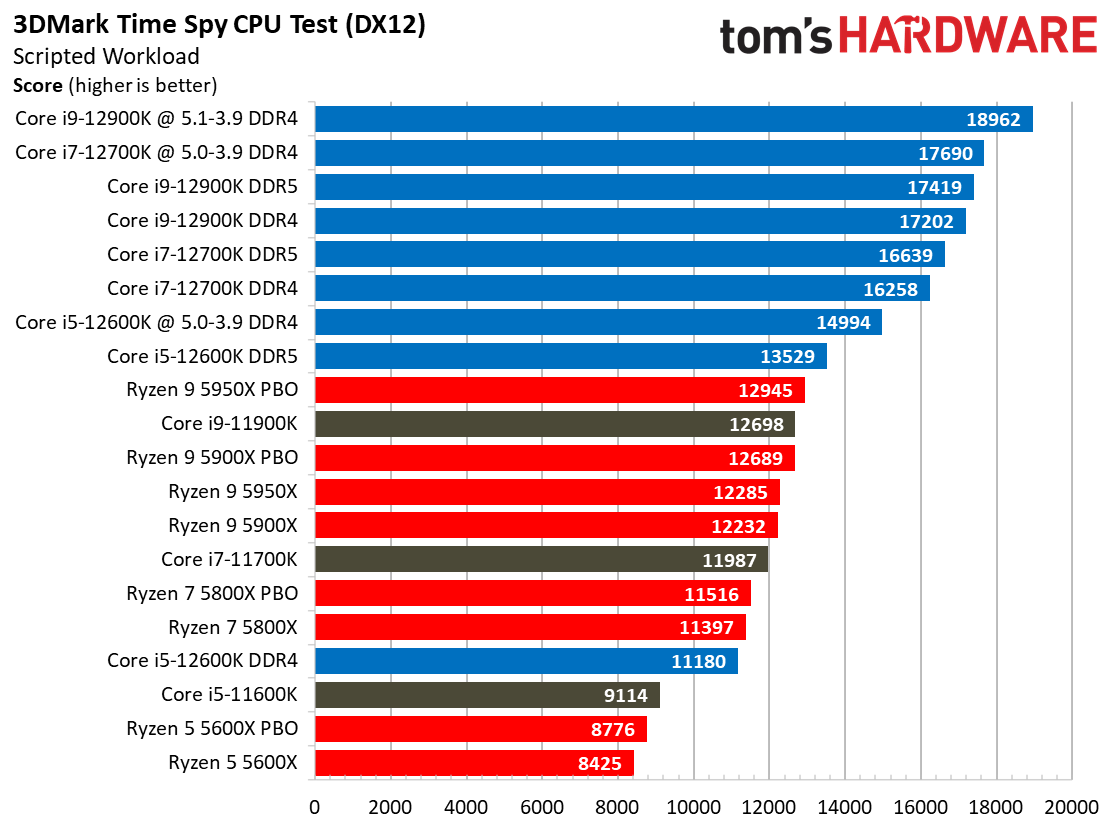
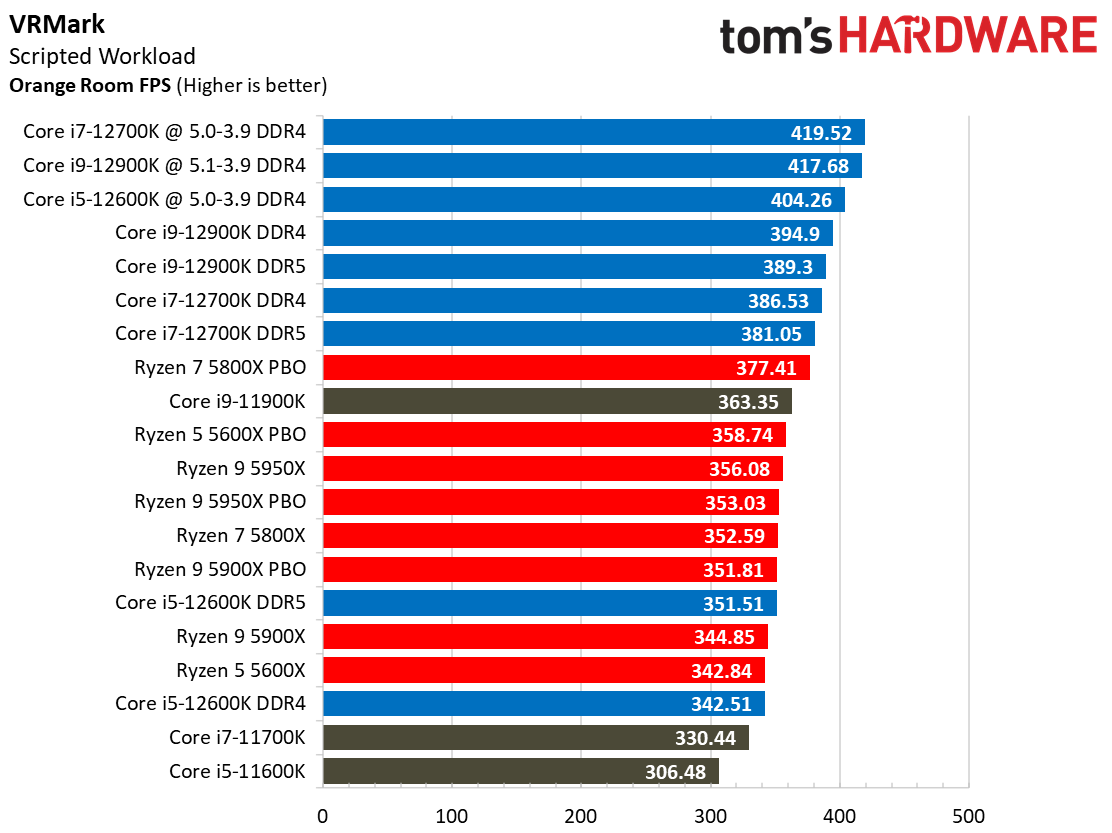
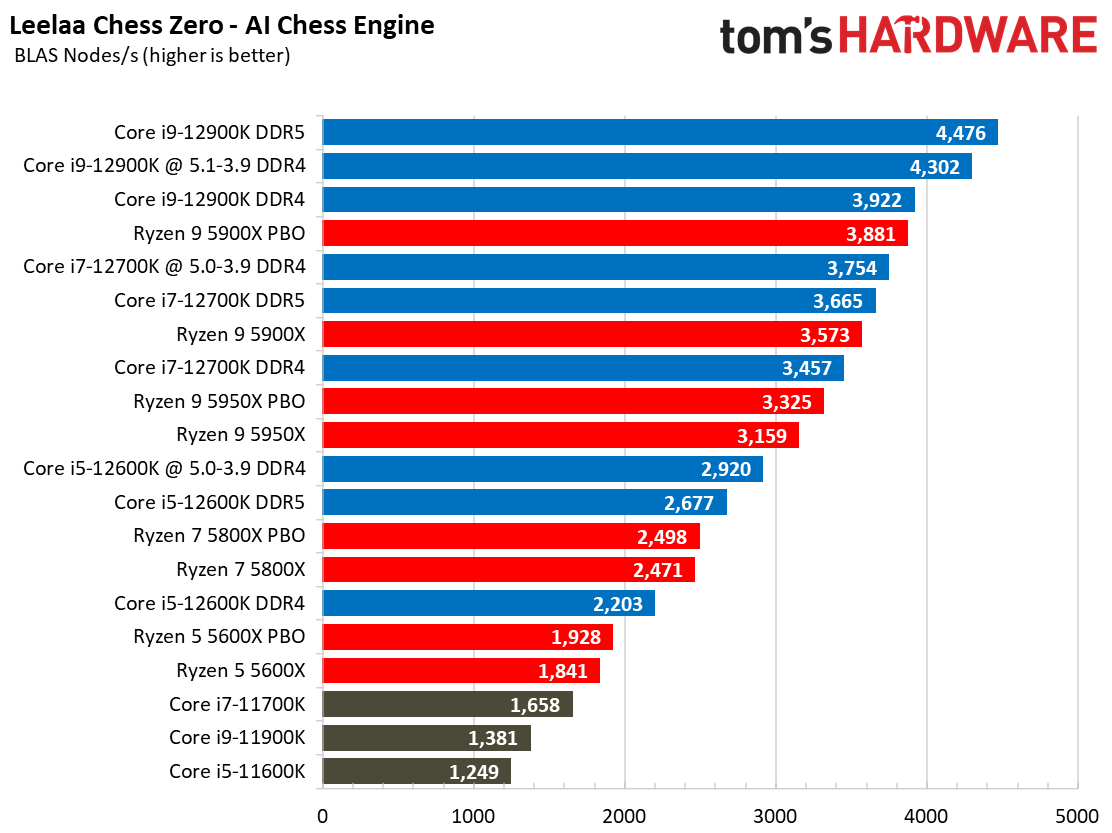
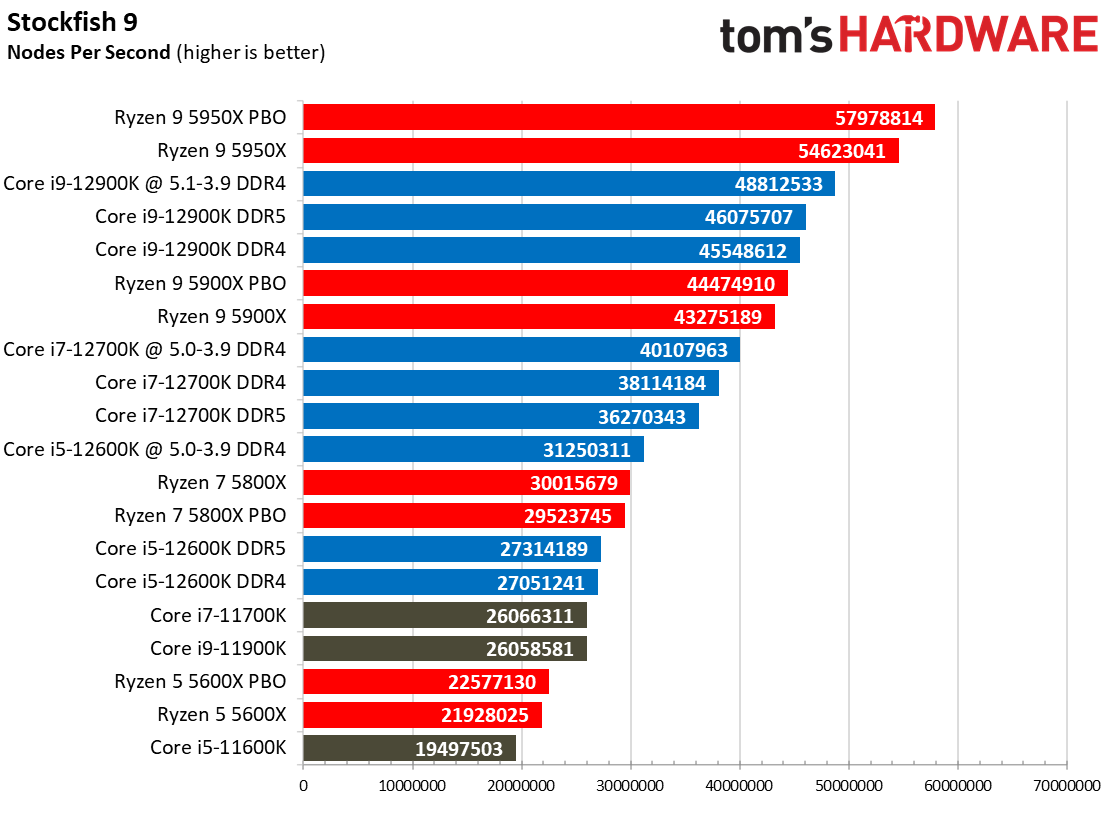
Synthetic benchmarks don't tend to translate well to real-world gaming, but they do show us the raw amount of compute power exposed to game engines. It's too bad most games don't fully exploit it.
The Core i7-12700K beats both the Ryzen contenders easily in the DX12 CPU test, taking a 32% lead over the Ryzen 9 5900X. Here we can see that DDR5 also provides a small performance boost, but it's within a few percentage points of the DDR4 config.
Meanwhile, the Ryzen 9 5900X is ~1% faster than the Core i7-12700K in the DX11 3DMark Time Spy CPU test, but that isn't very impressive given its $140 higher price point. The Core i7-12700K fires back in the VRMark benchmark, taking an 8% lead over the 5800X.
We've added the open-source neural network-based Leela chess engine to our benchmark roster. As evidenced by the DDR5 test results, this AI-powered engine obviously scales better with more memory throughput than the Stockfish engine, allowing the 12700K to scrape past the 5900X. The Stockfish test goes in the Ryzen 9 5900X's favor to the tune of 13%, reminding us that the 5900X will still lead in some threaded tasks.
Far Cry 6 on Core i7-12700K
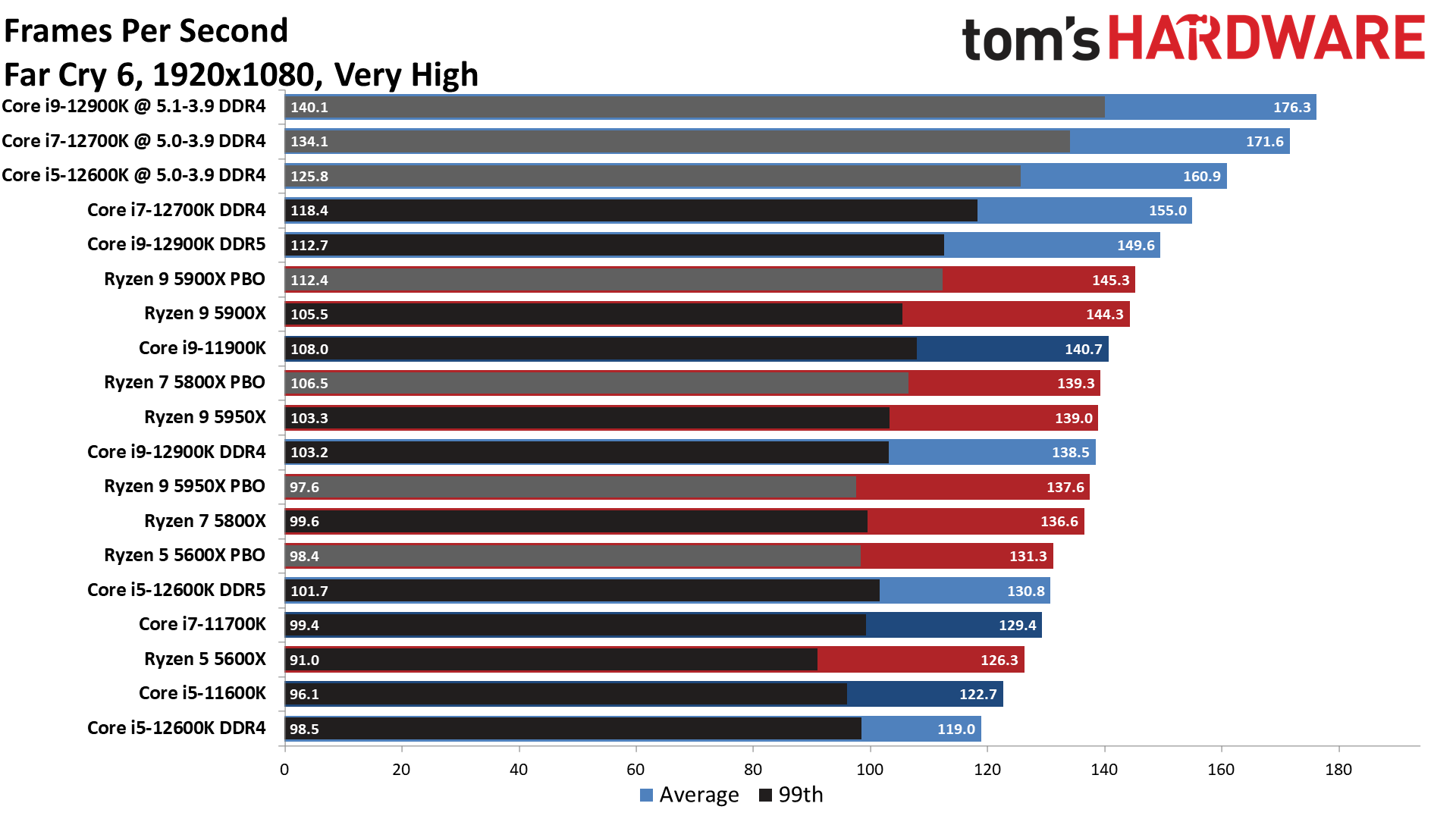
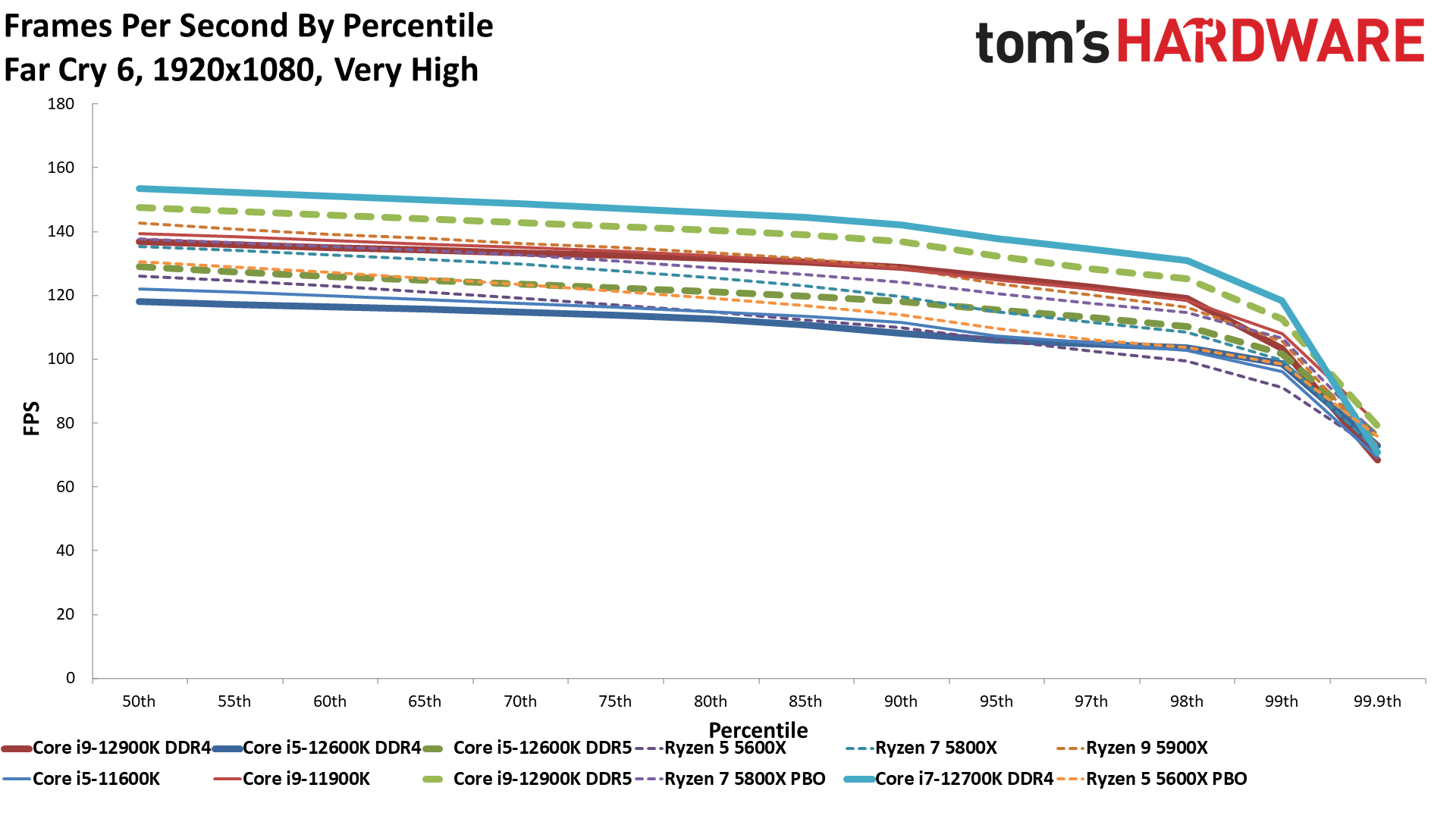
F1 2021 on Core i7-12700K
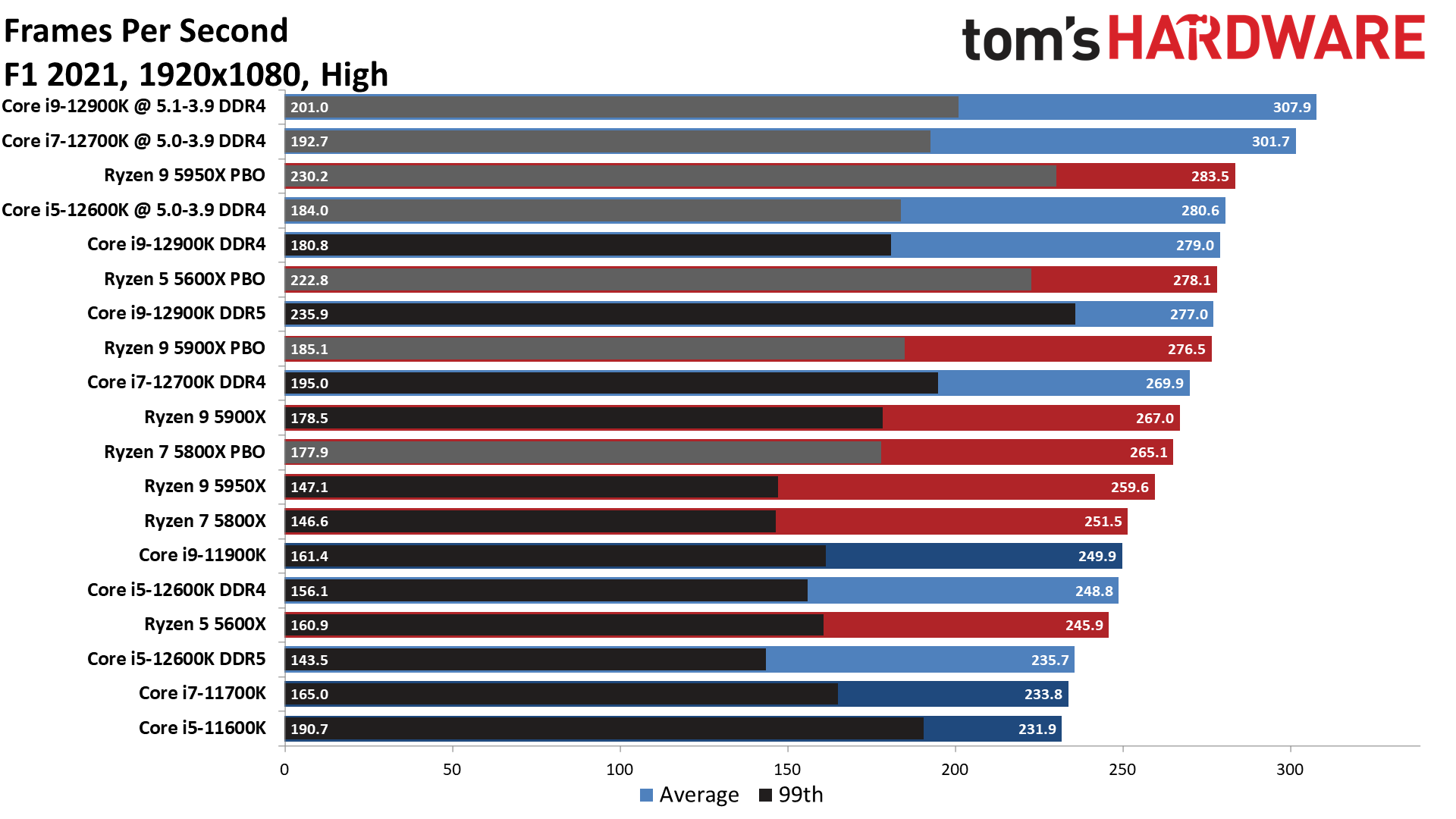
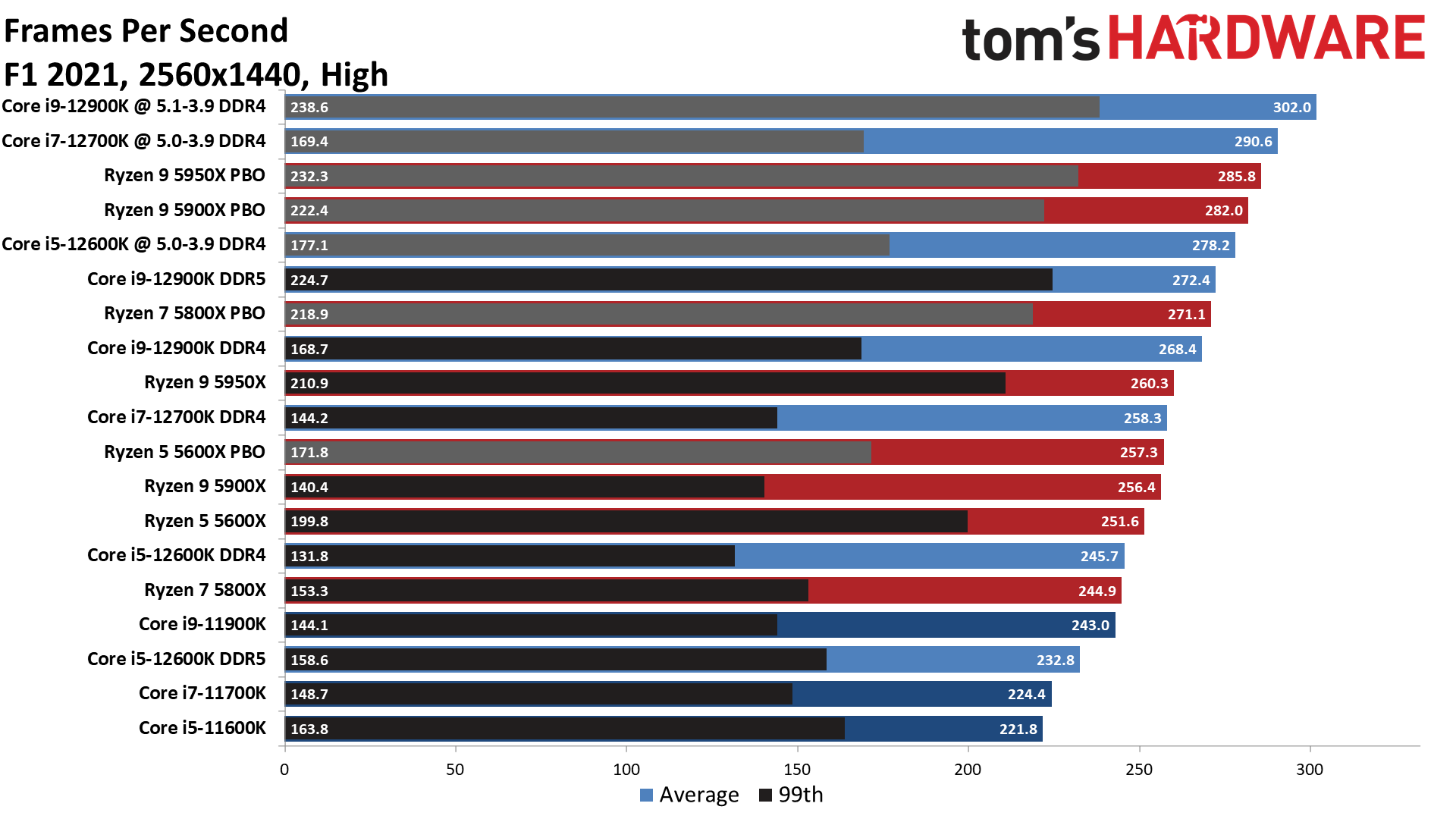
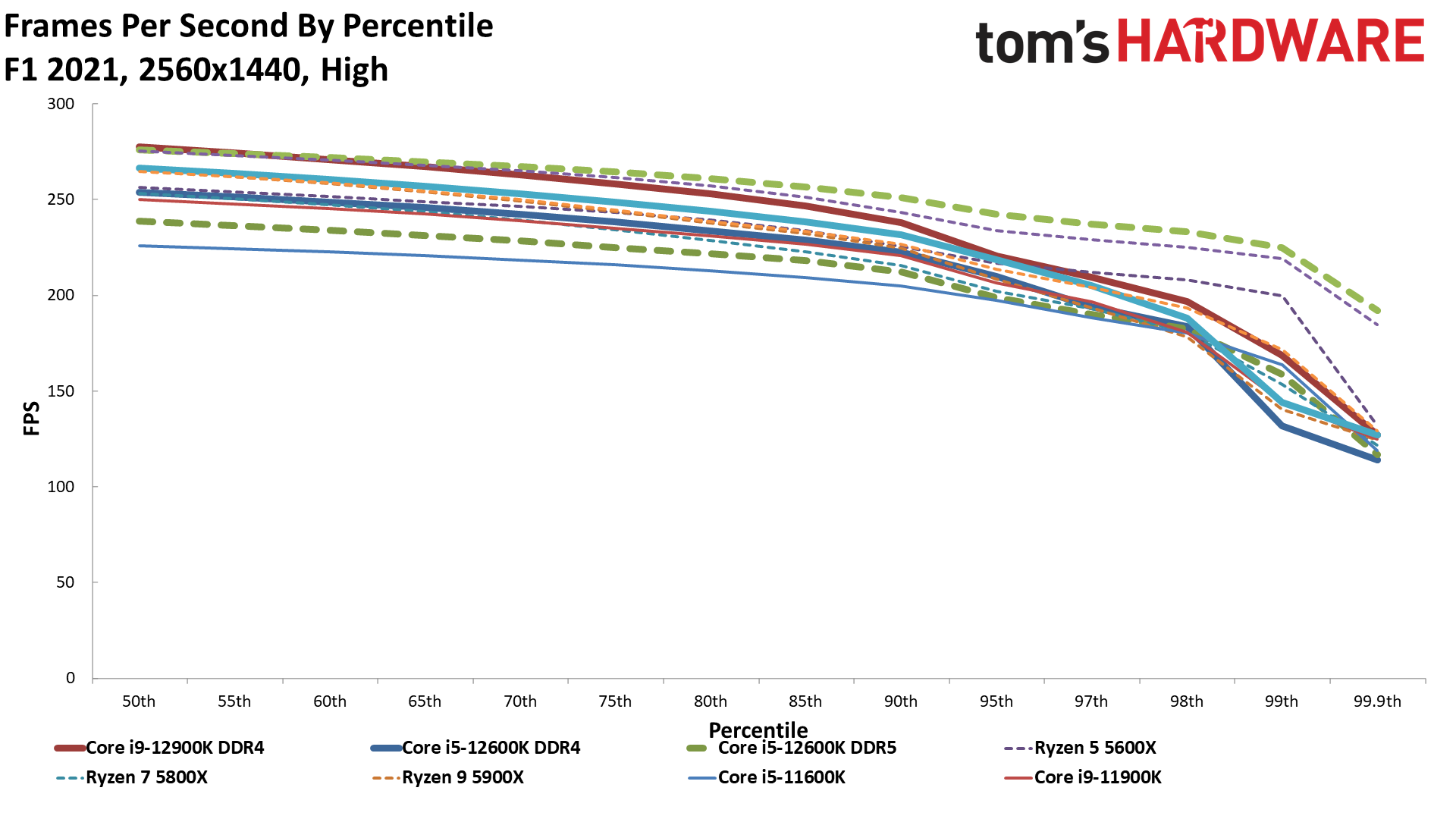
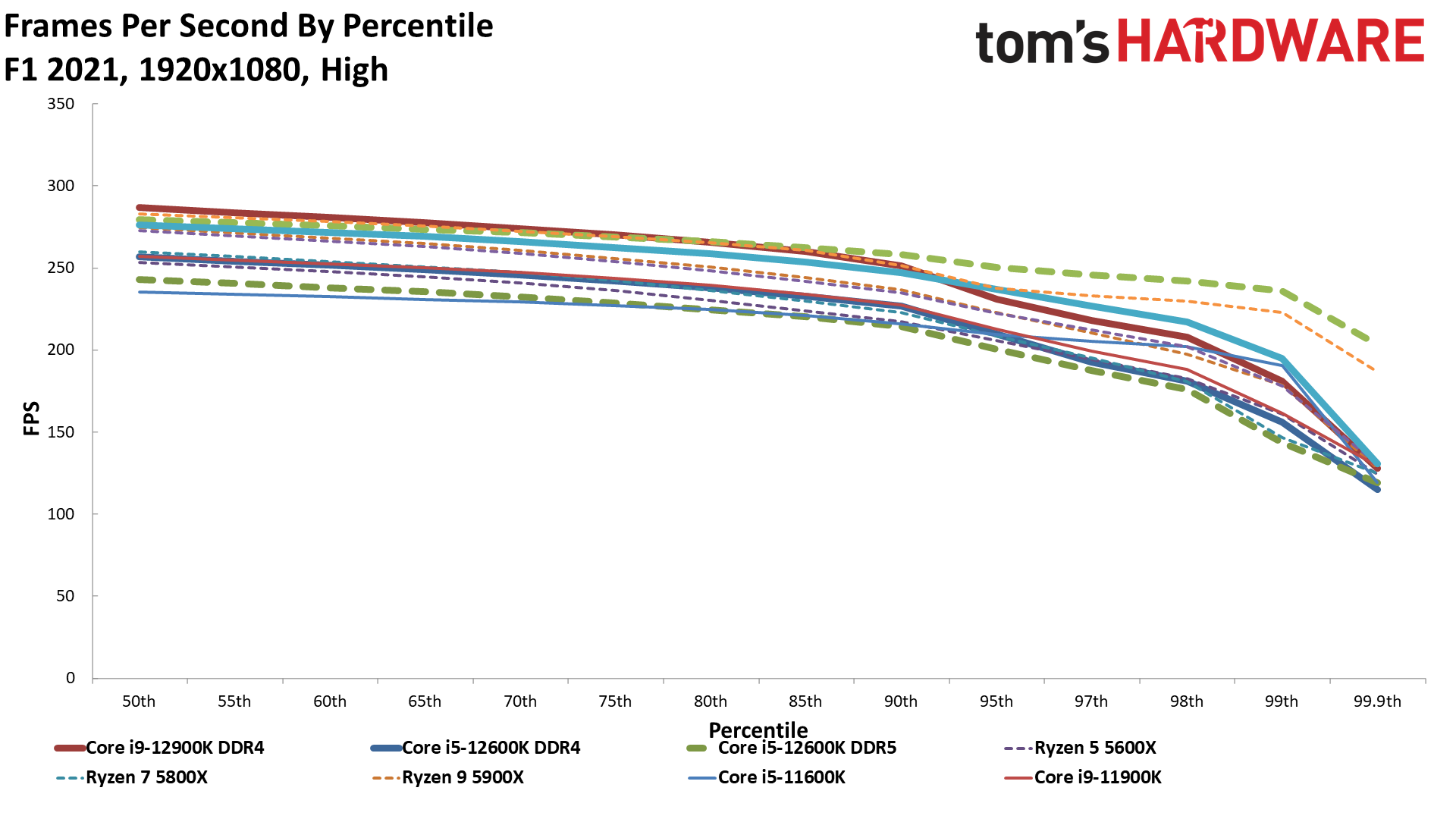
Hitman 3 on Core i7-12700K
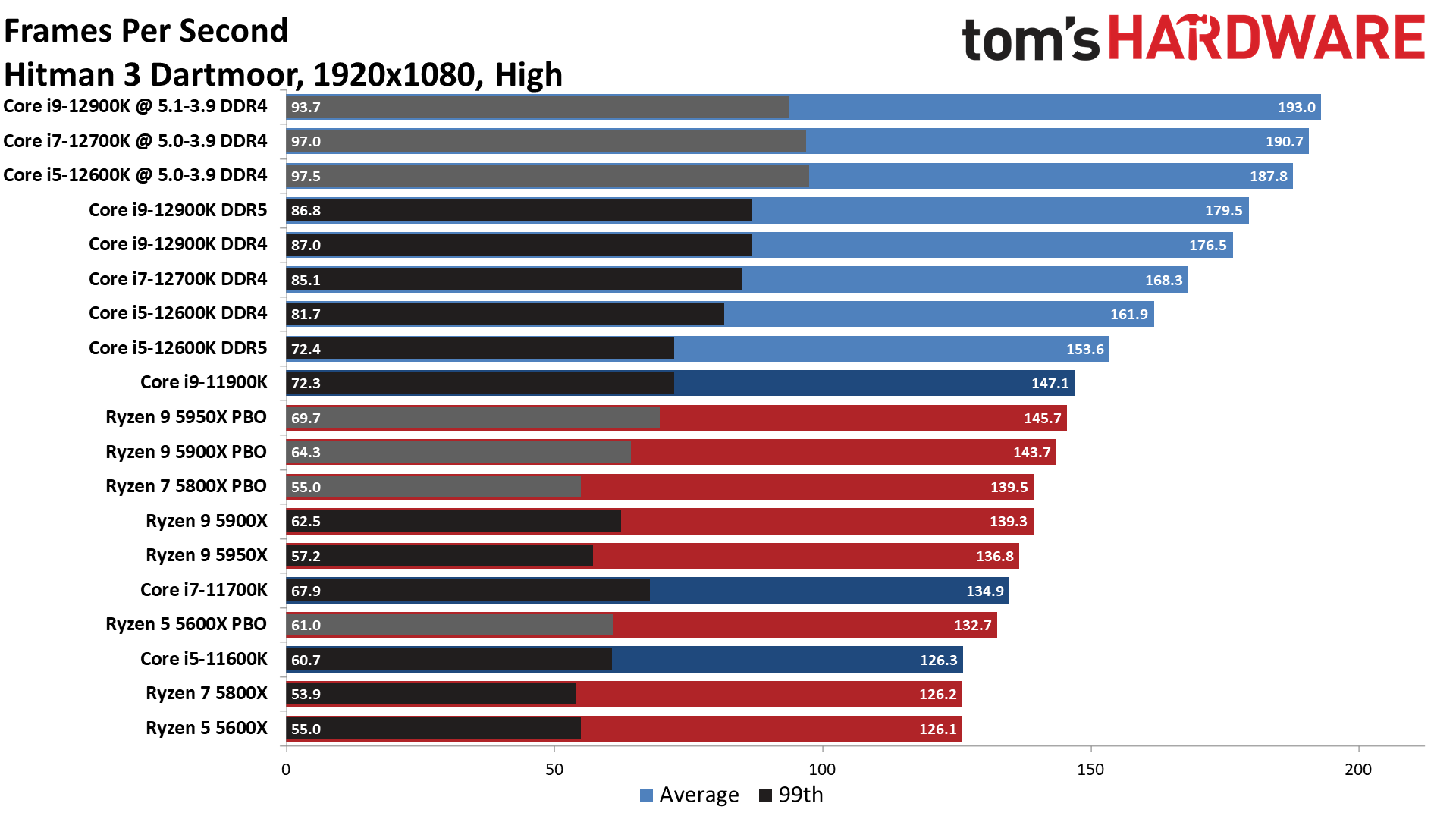
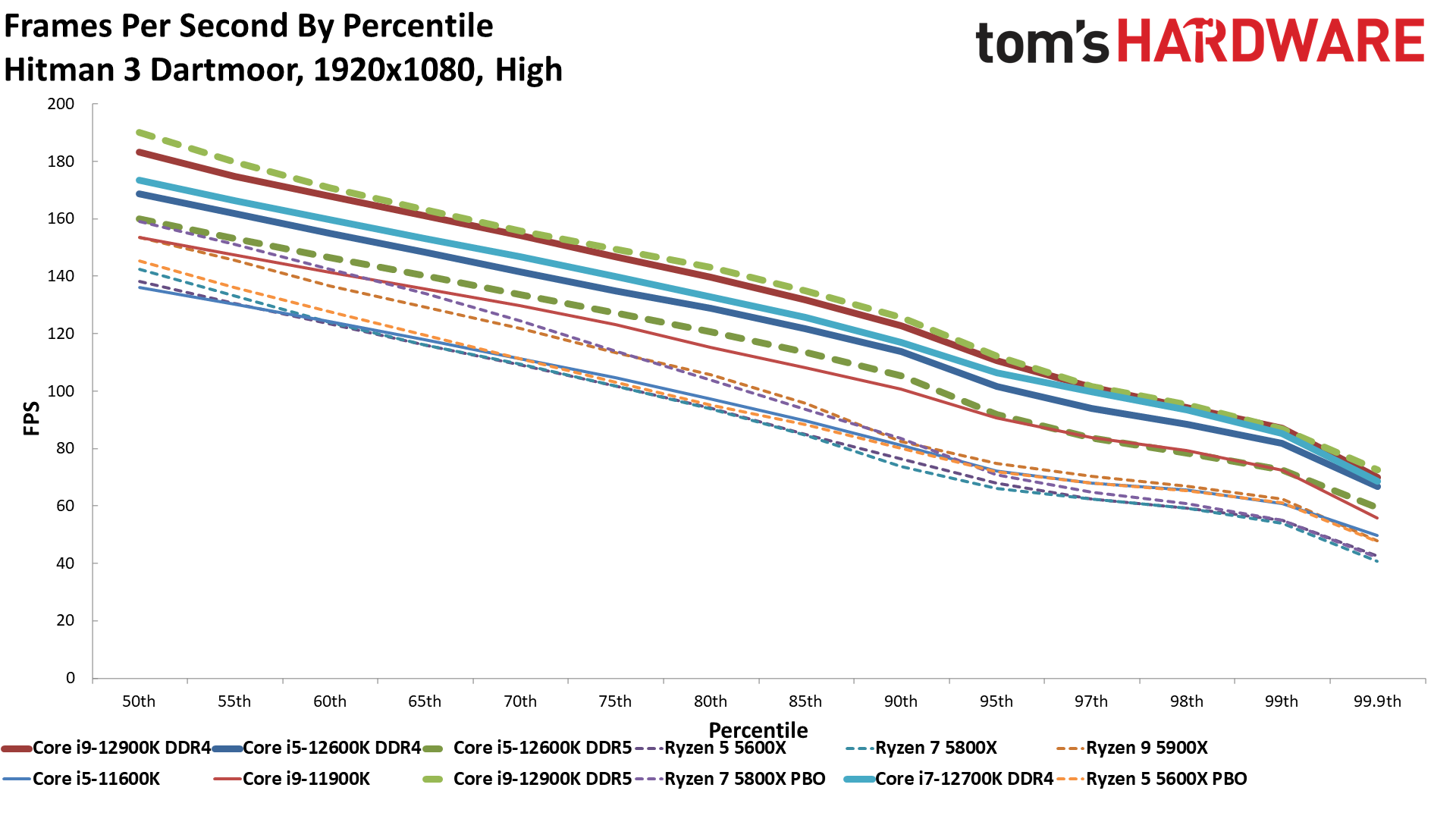
Horizon Zero Dawn on Core i7-12700K
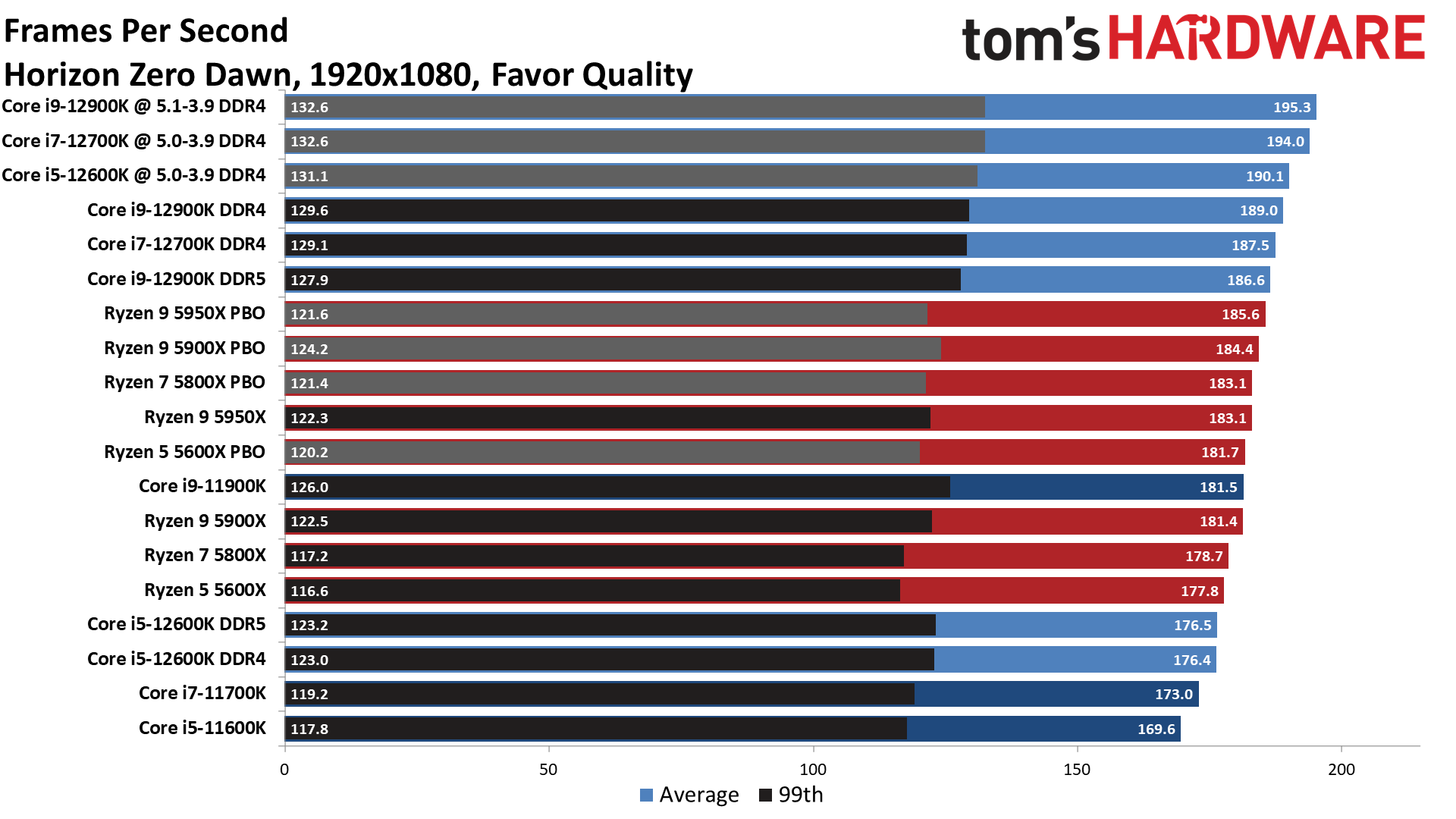
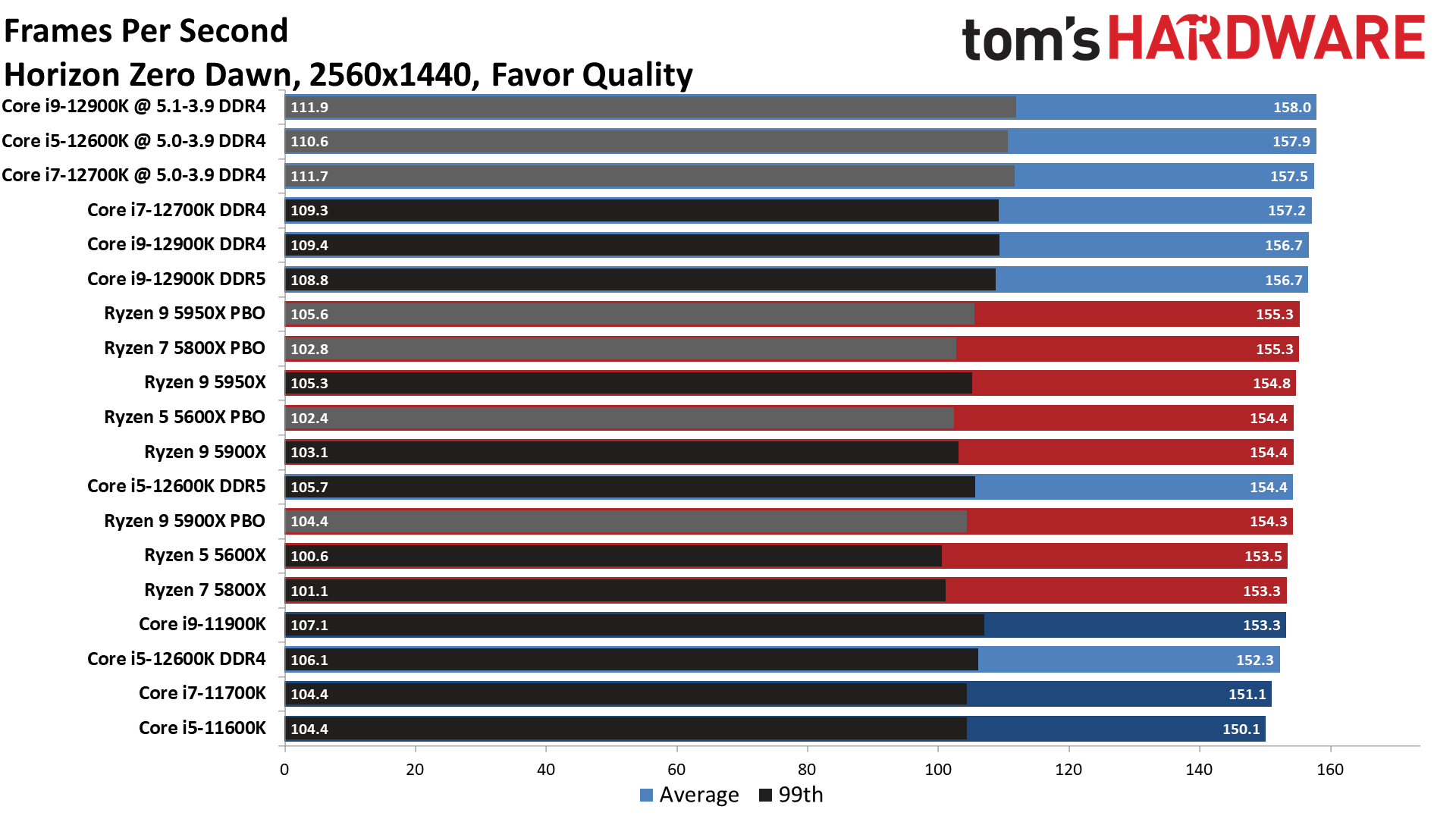
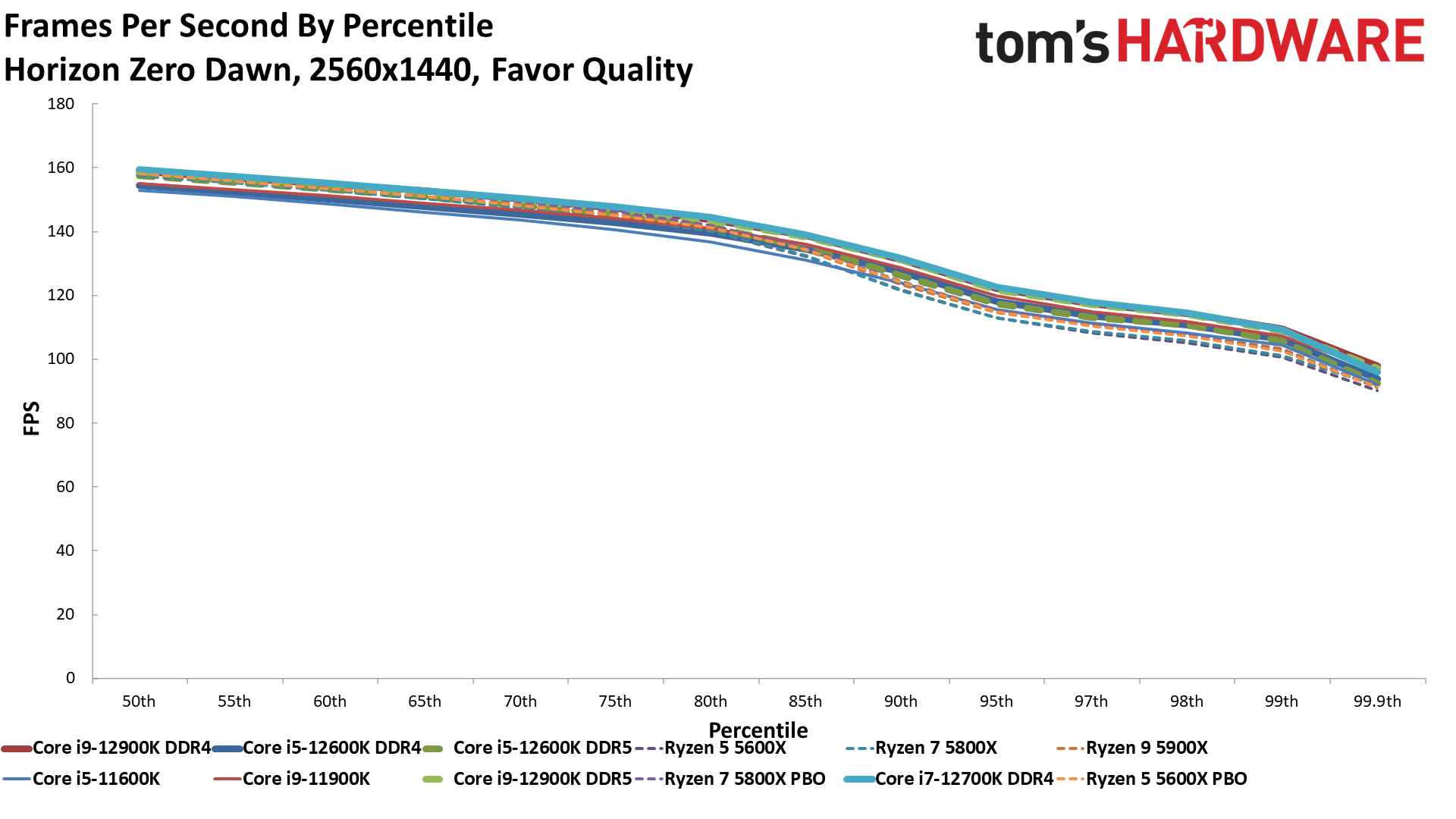
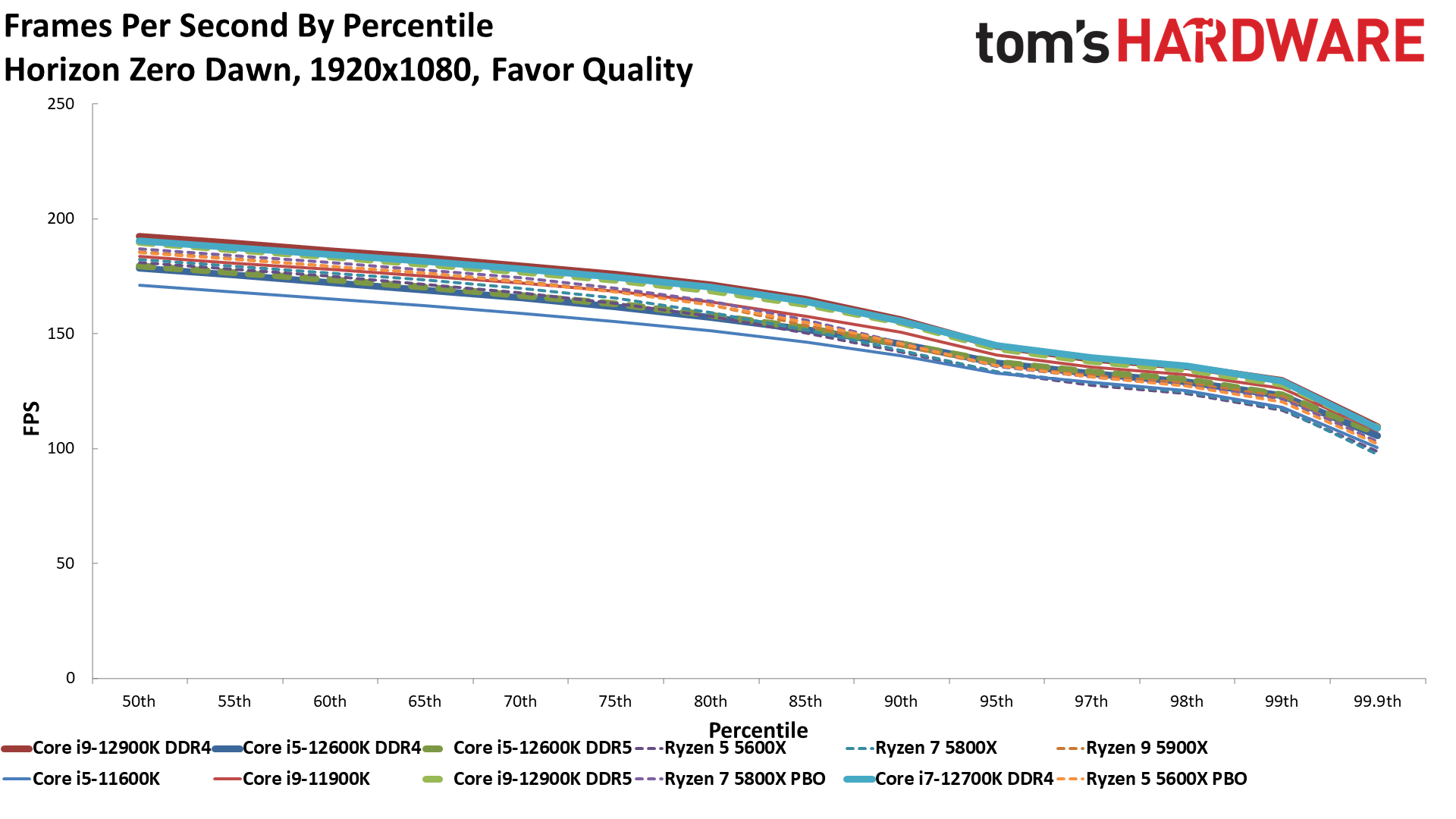
Microsoft Flight Simulator 2021 on Core i7-12700K
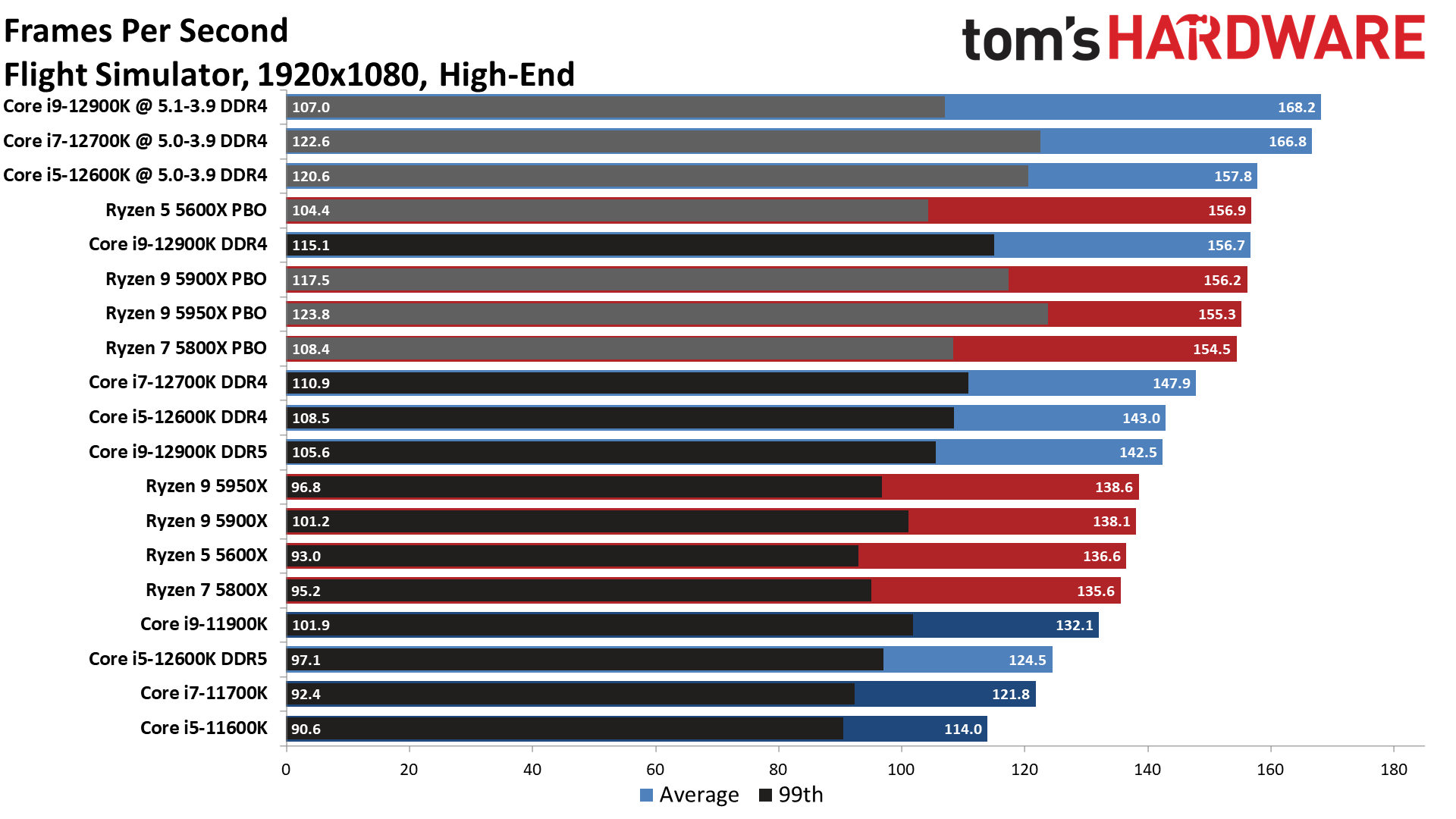
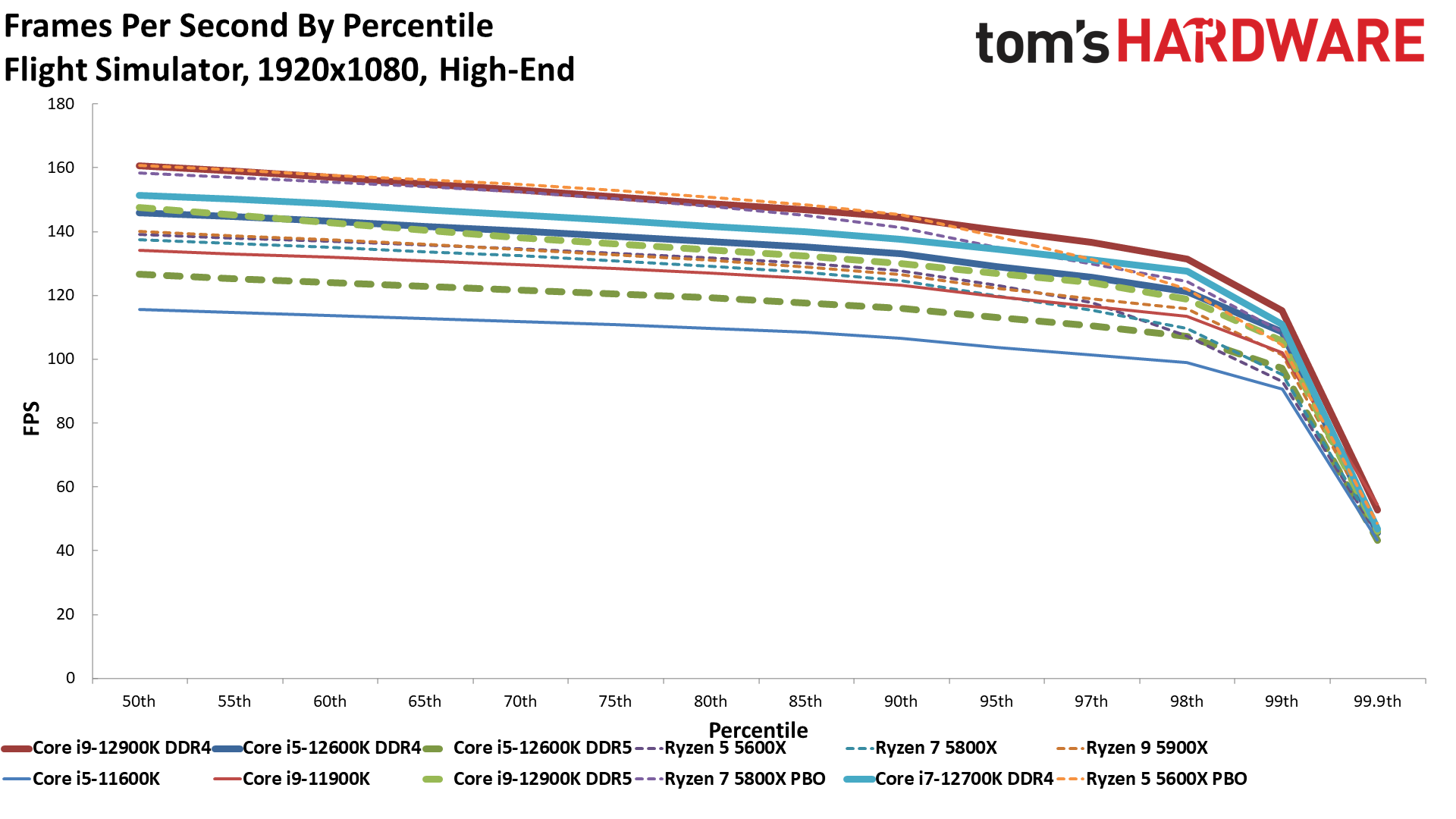
Red Dead Redemption 2 on Core i7-12700K
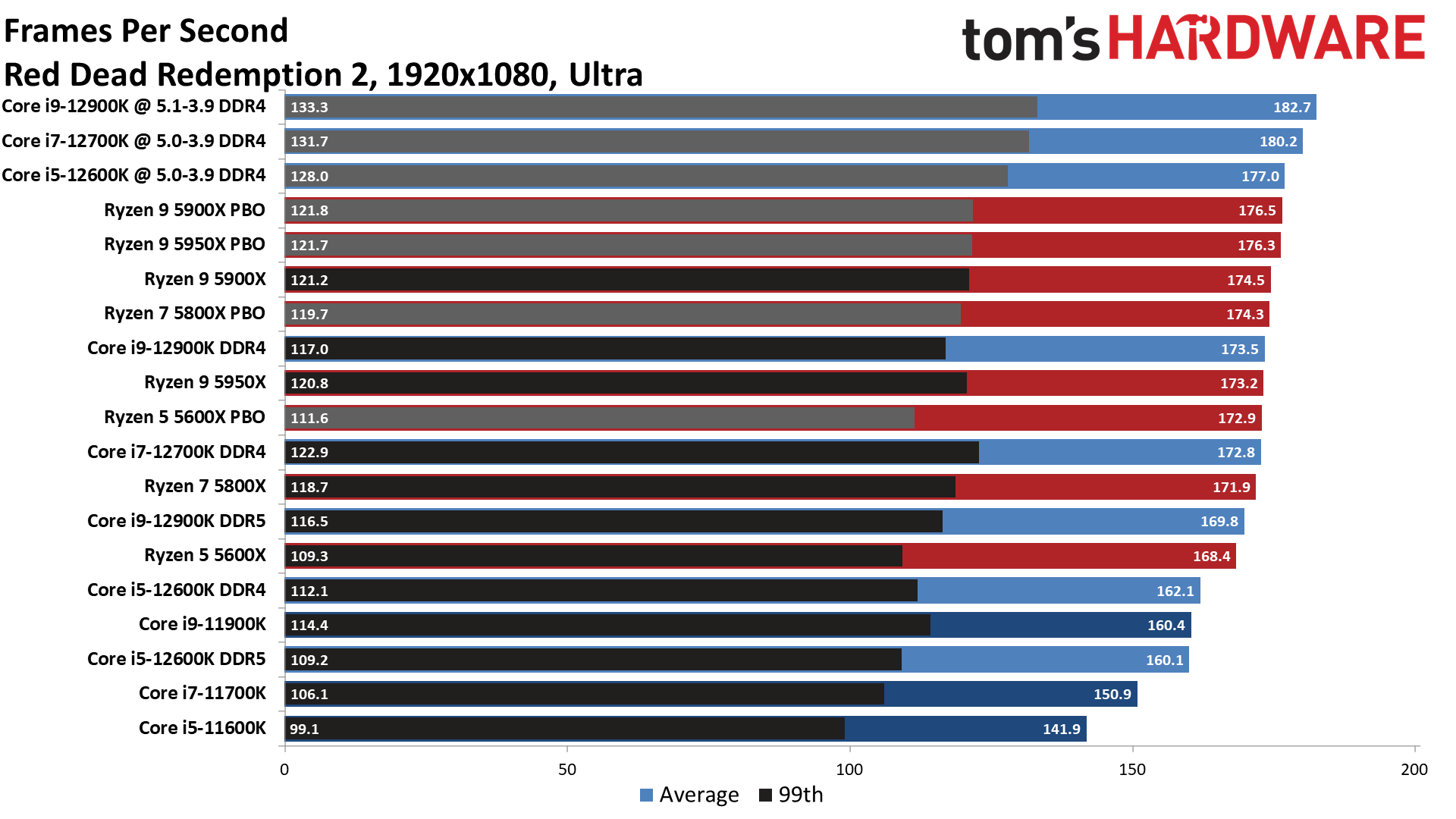
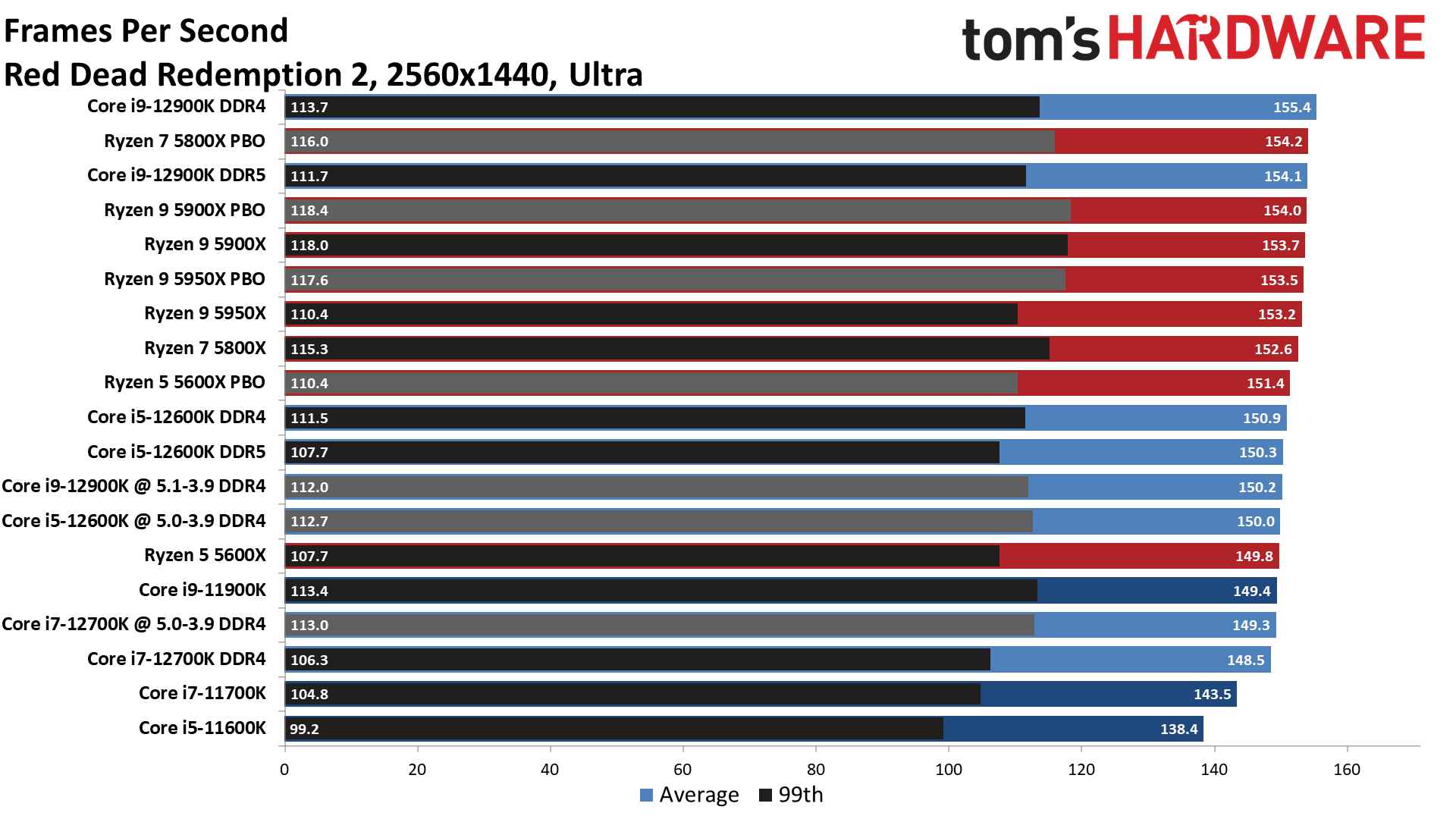

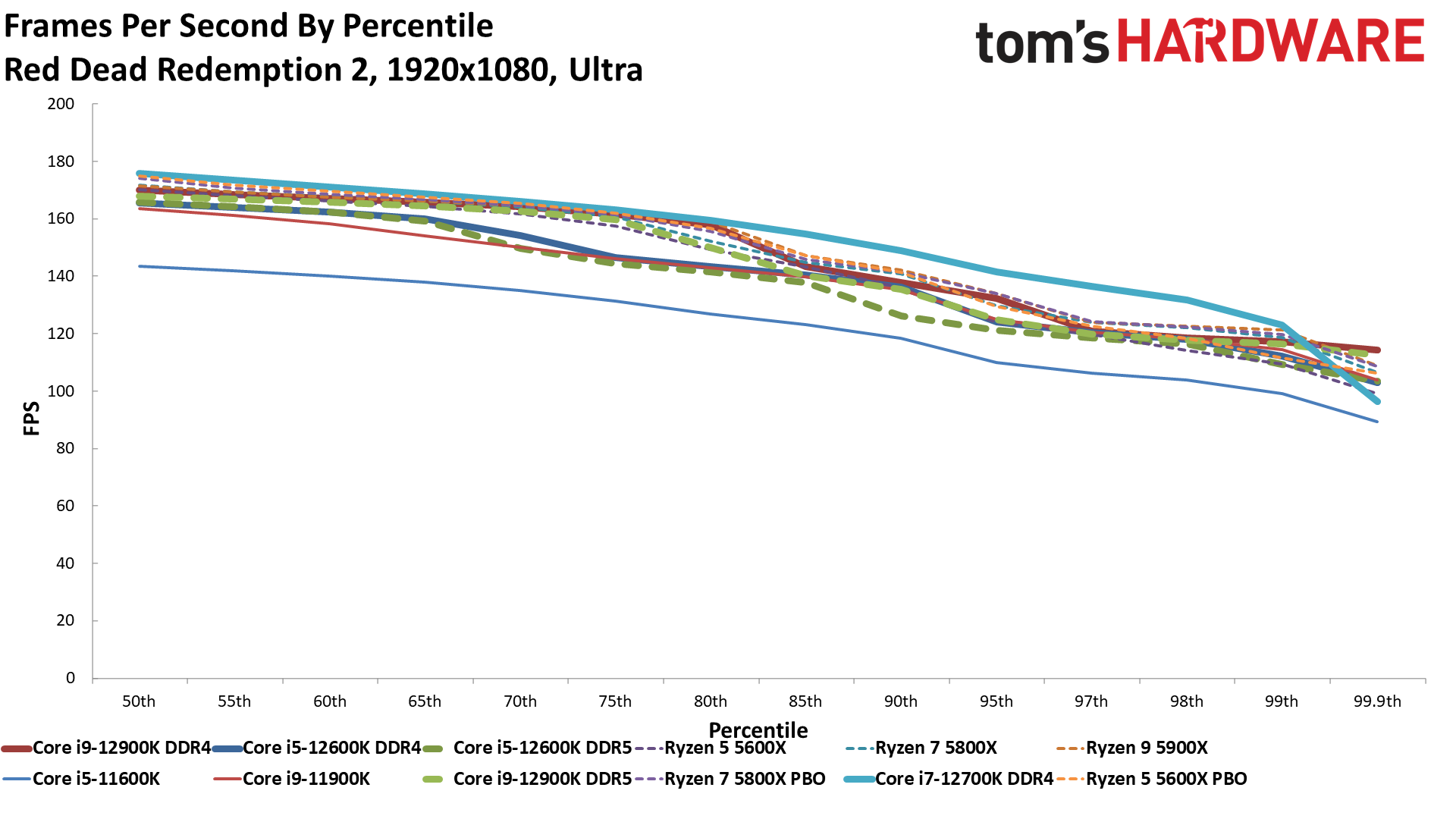
Watch Dogs Legion on Core i7-12700K
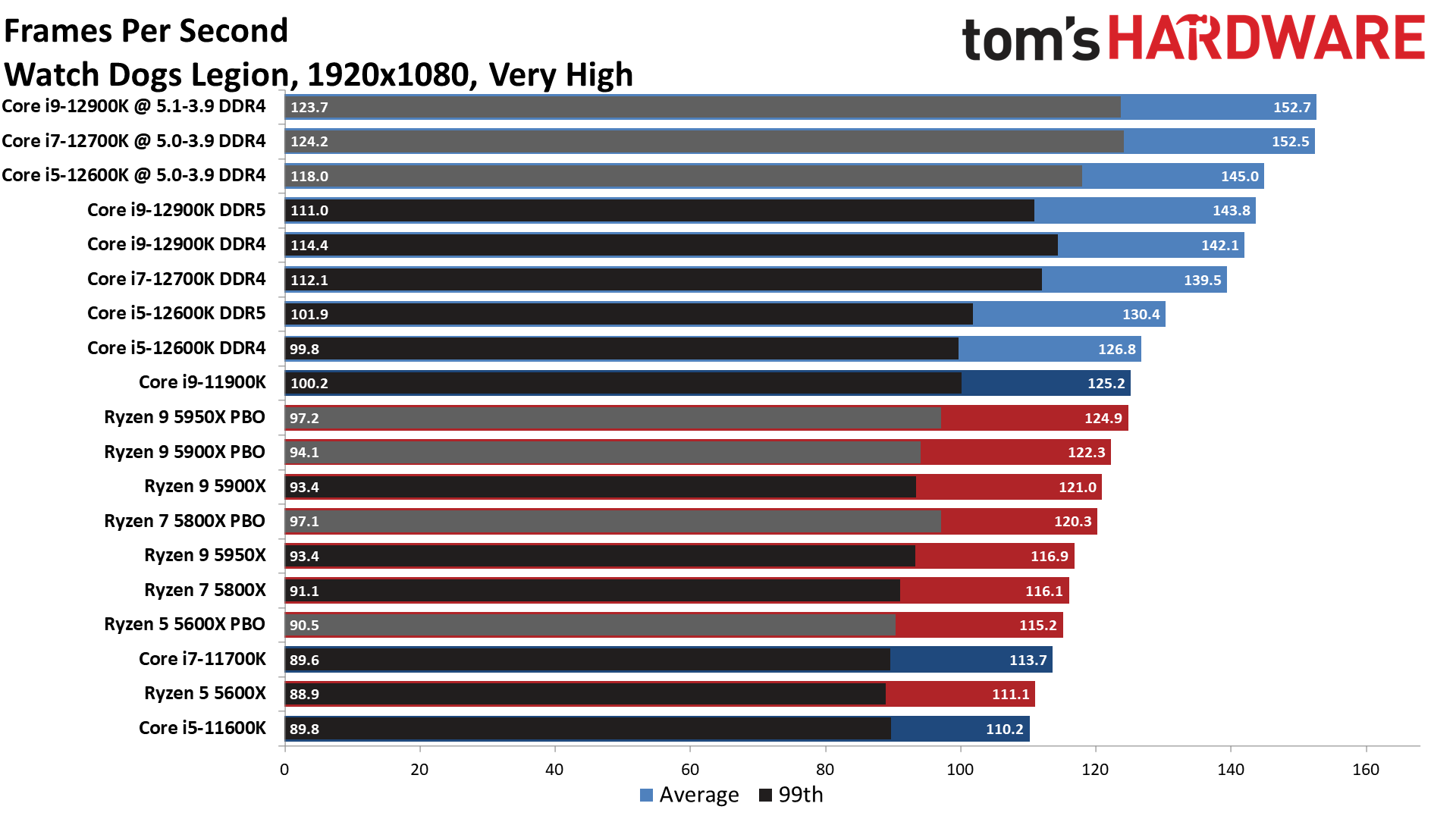
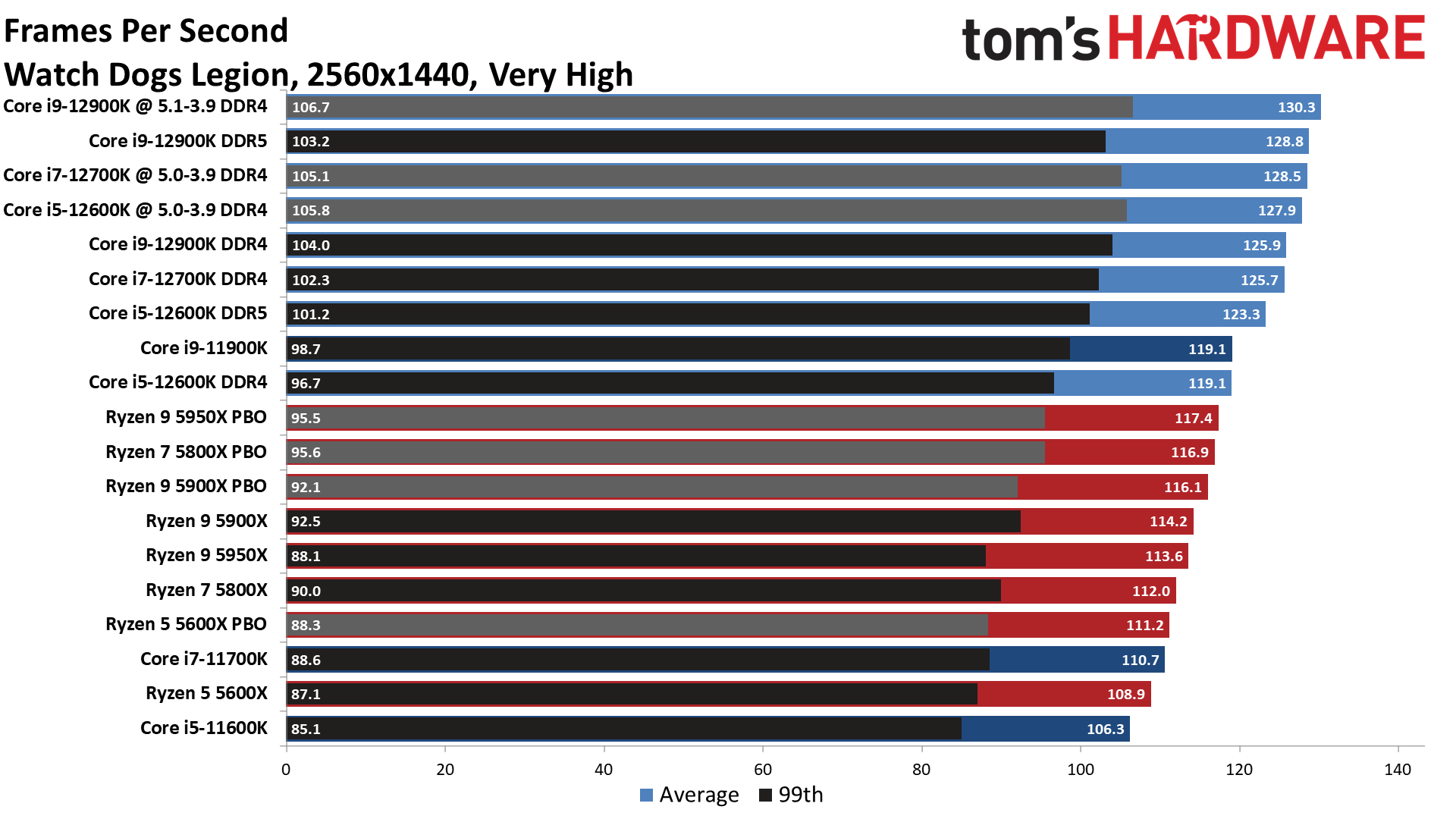
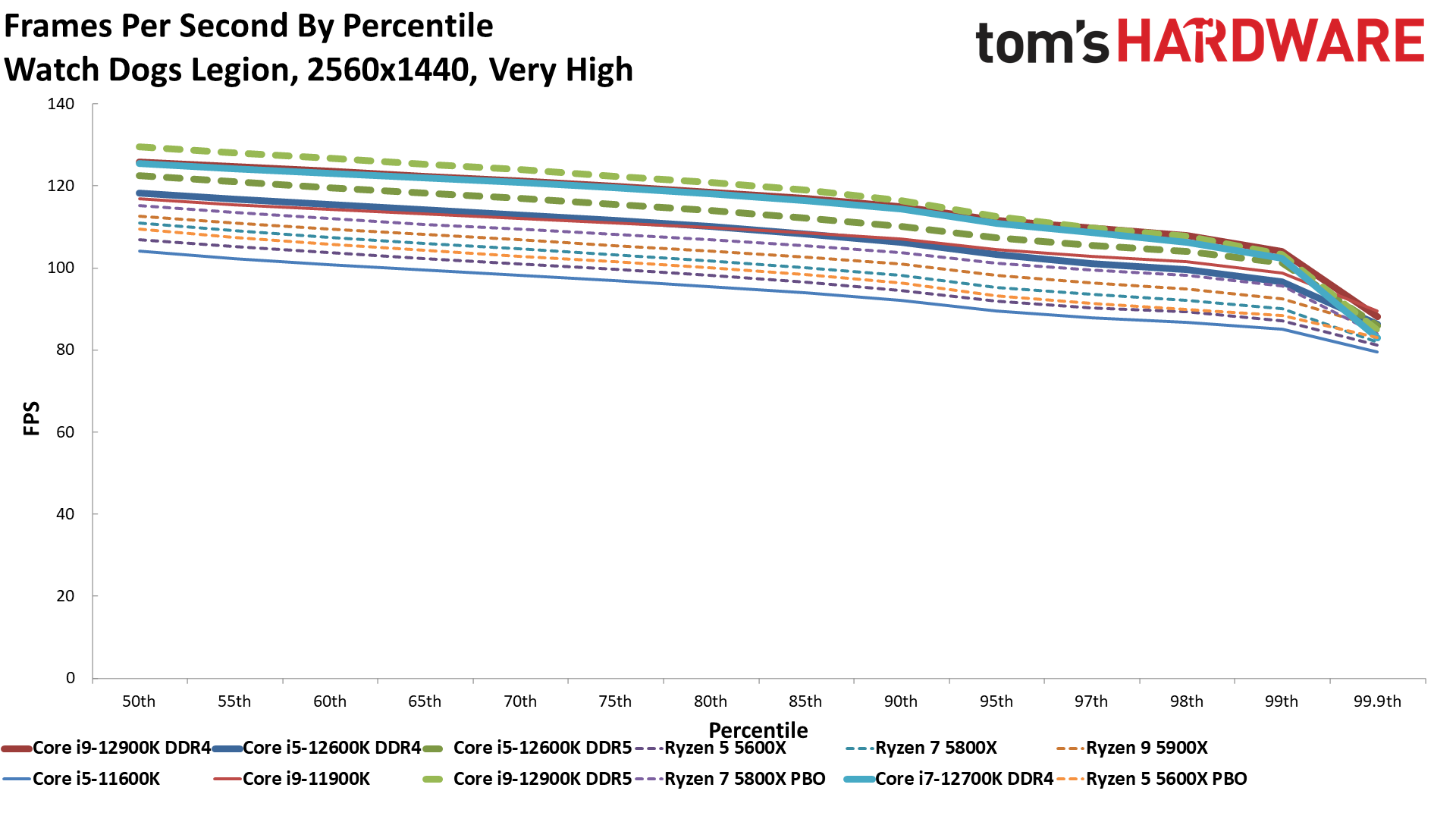
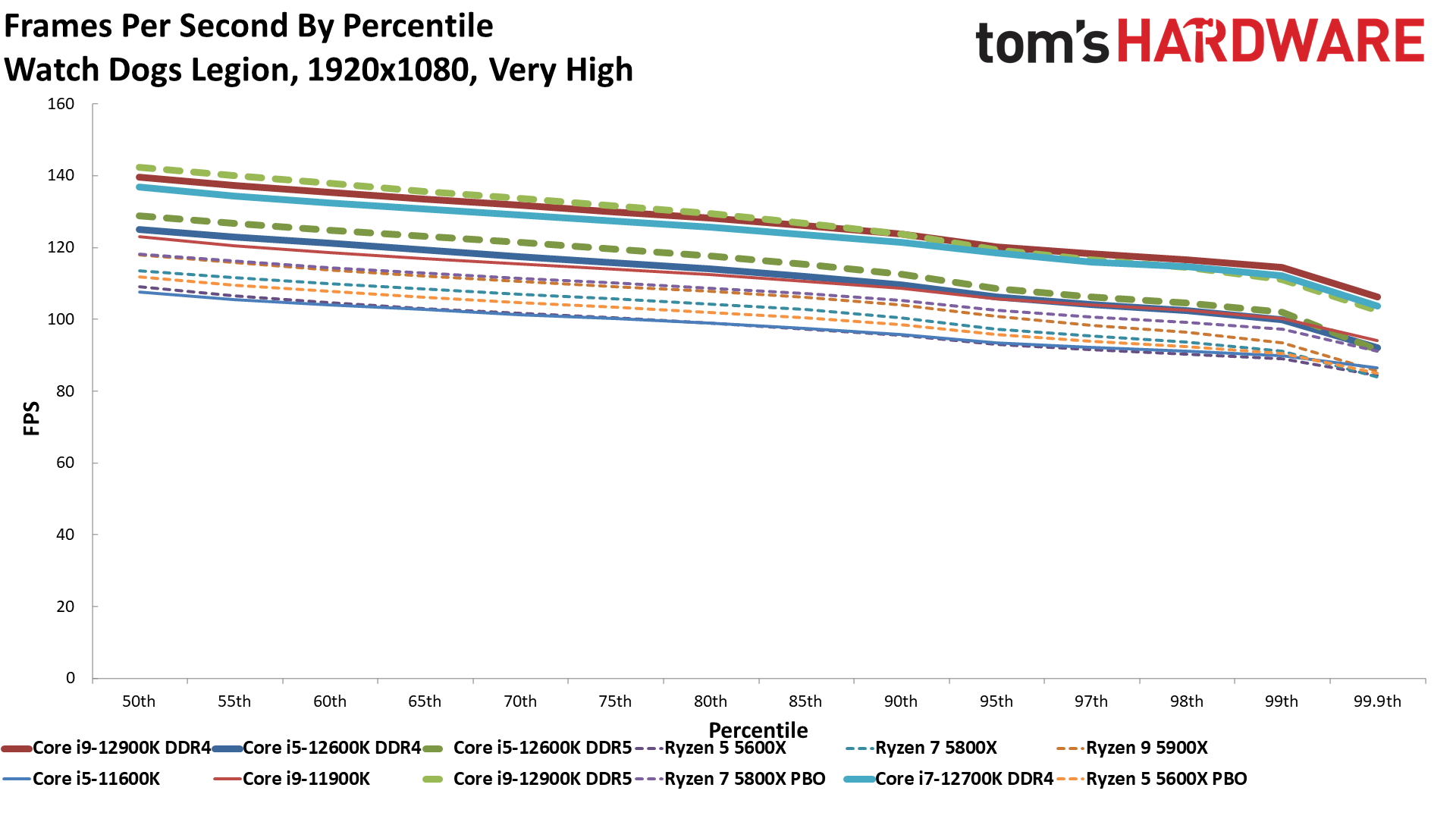
- MORE: Best CPUs for Gaming
- MORE: CPU Benchmark Hierarchy
- MORE: AMD vs Intel
- MORE: All CPUs Content
Current page: Intel Core i7-12700K Gaming Benchmarks
Prev Page Intel Core i7-12700K Power Consumption and Efficiency Next Page Intel Core i7-12700K Application Benchmarks
Paul Alcorn is the Editor-in-Chief for Tom's Hardware US. He also writes news and reviews on CPUs, storage, and enterprise hardware.
-
Soaptrail I like that the summary under the graph for the games average says 12% faster than the AMD 5800 but no one is going to be using a 12700K to play at 1080p. If we go to 1440p the Intel still wins but only by 4% and even then any of these CPU's are all solid choices for gaming. I will give Intel the win but we are splitting hairs on saying it is 12% better at 1080p.Reply